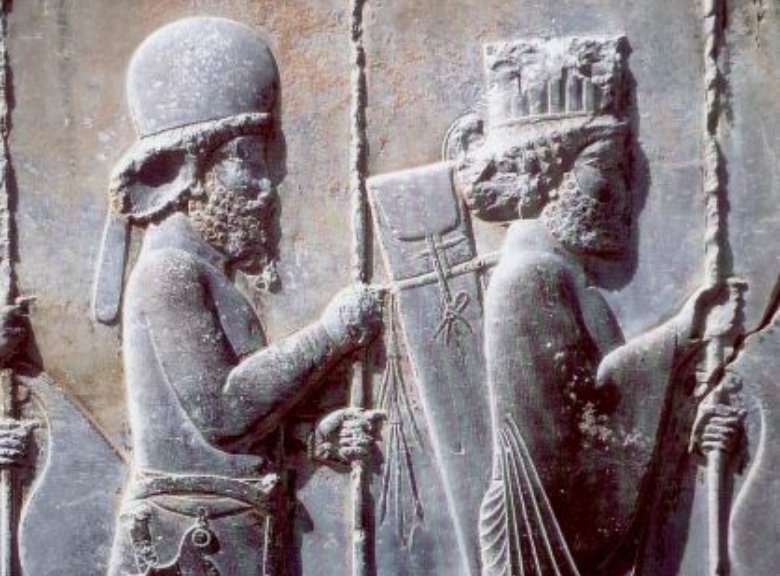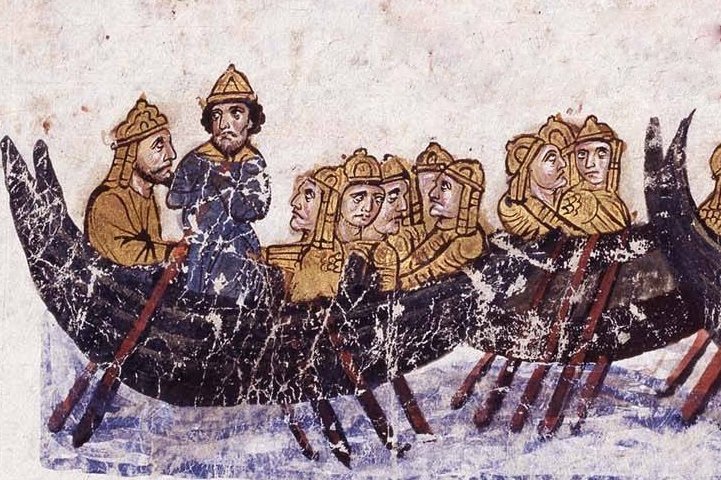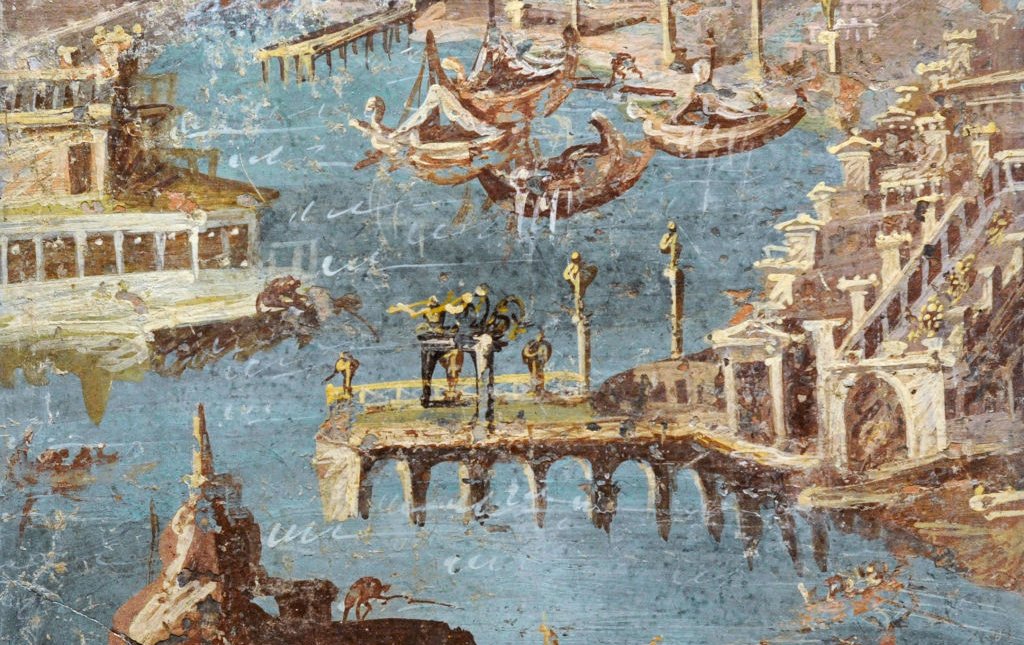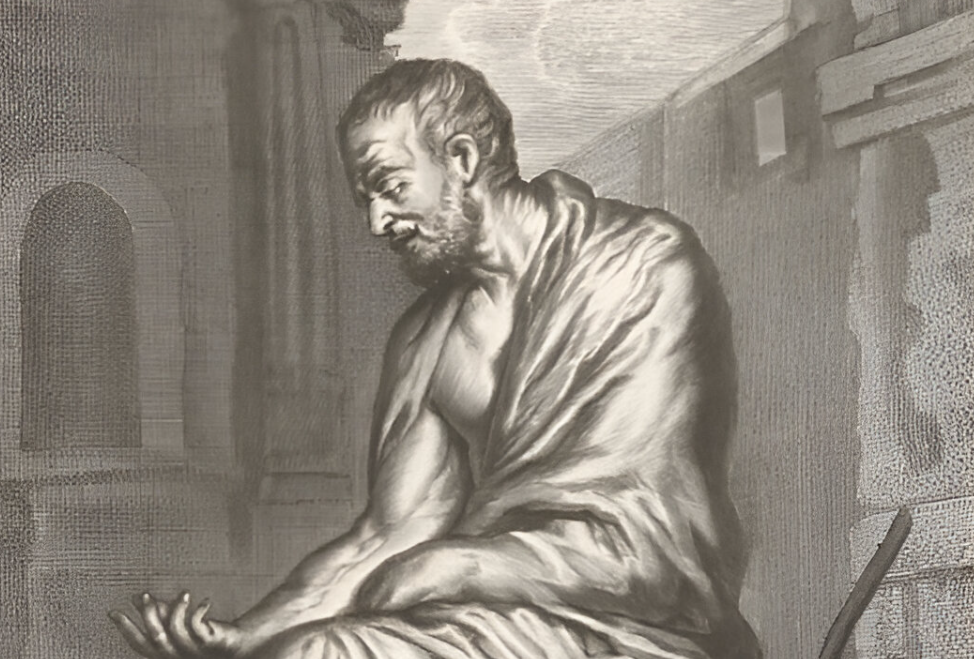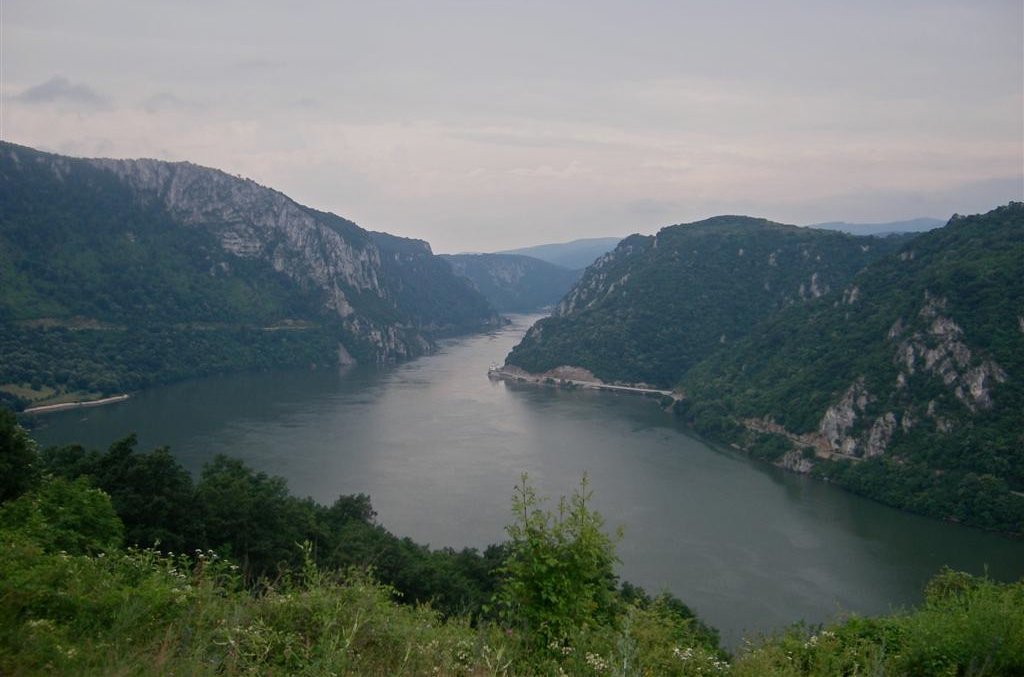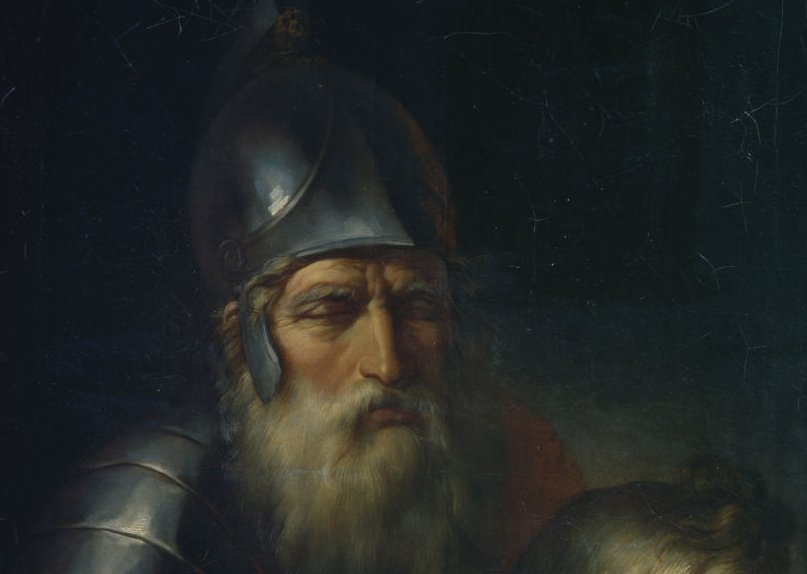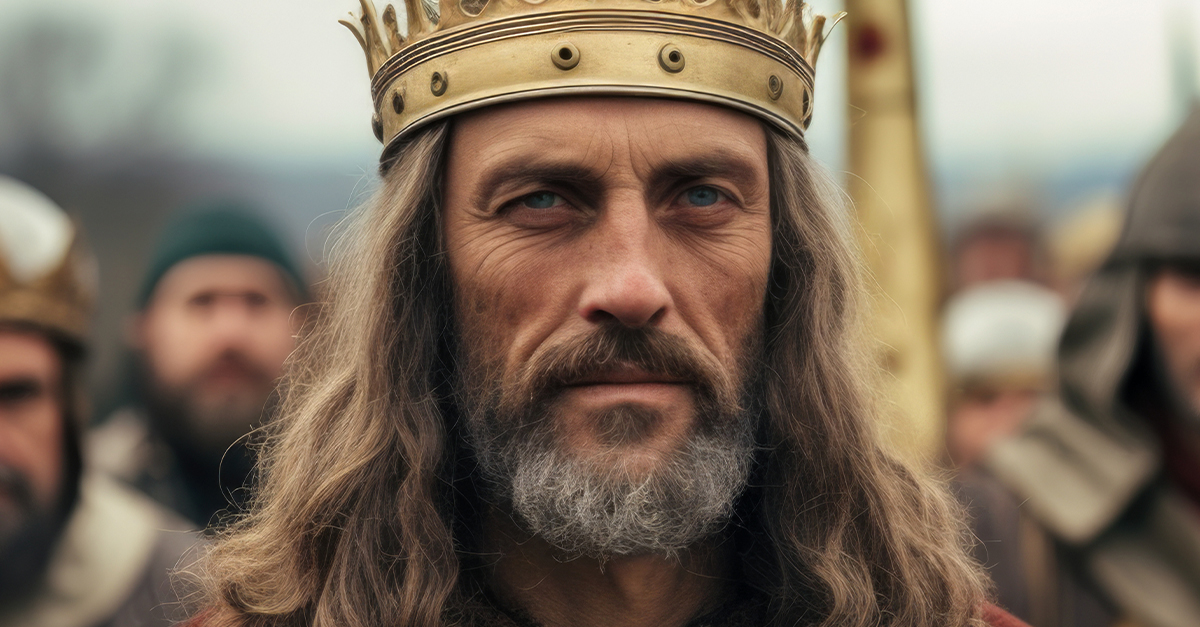The General Who Reconquered Rome
Belisarius proved himself a genius of leadership and strategy, reconquering vast tracts of territory for a power-hungry emperor. But his exploits on the field of combat couldn’t possibly have prepared him to navigate the treacherous world of politics.
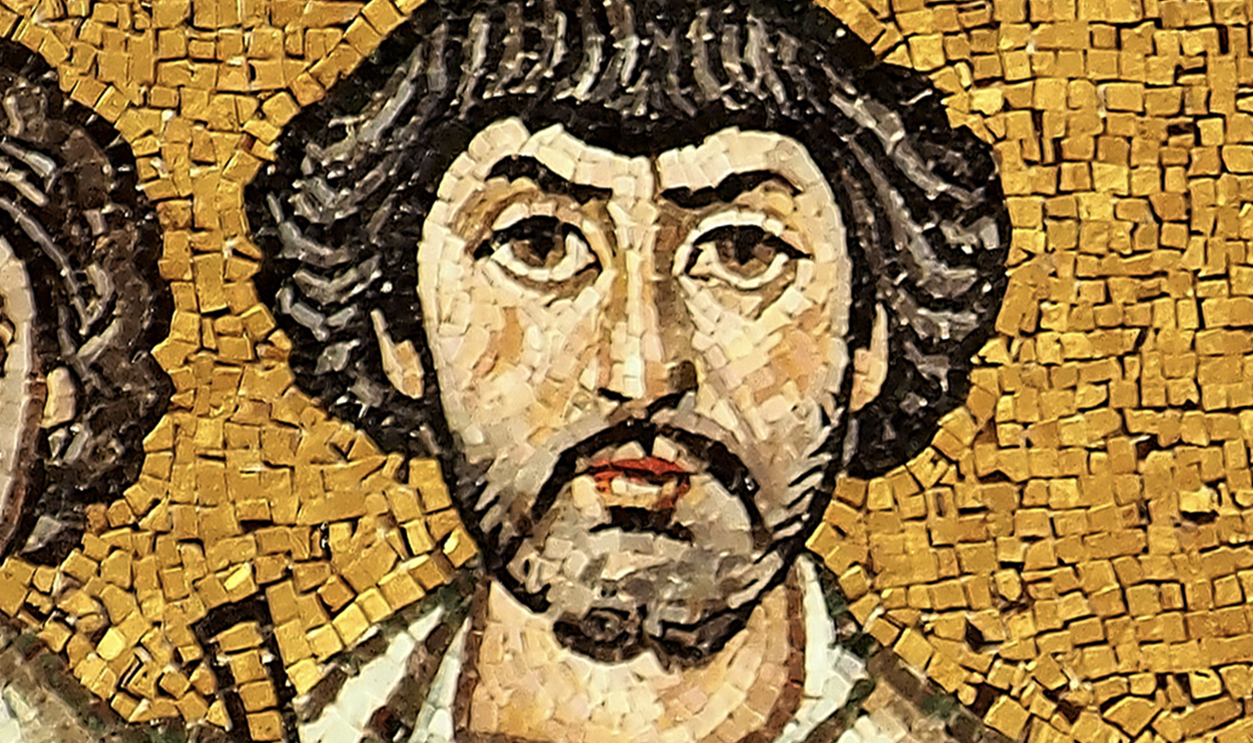
1. He Had No Choice
Belisarius was born around 500 CE in the region known as Thrace, or present-day Bulgaria. It was customary for young men of Thrace to go off and join the army and fight for the Byzantine king, and Belisarius was no exception. A life of brutality awaited him.
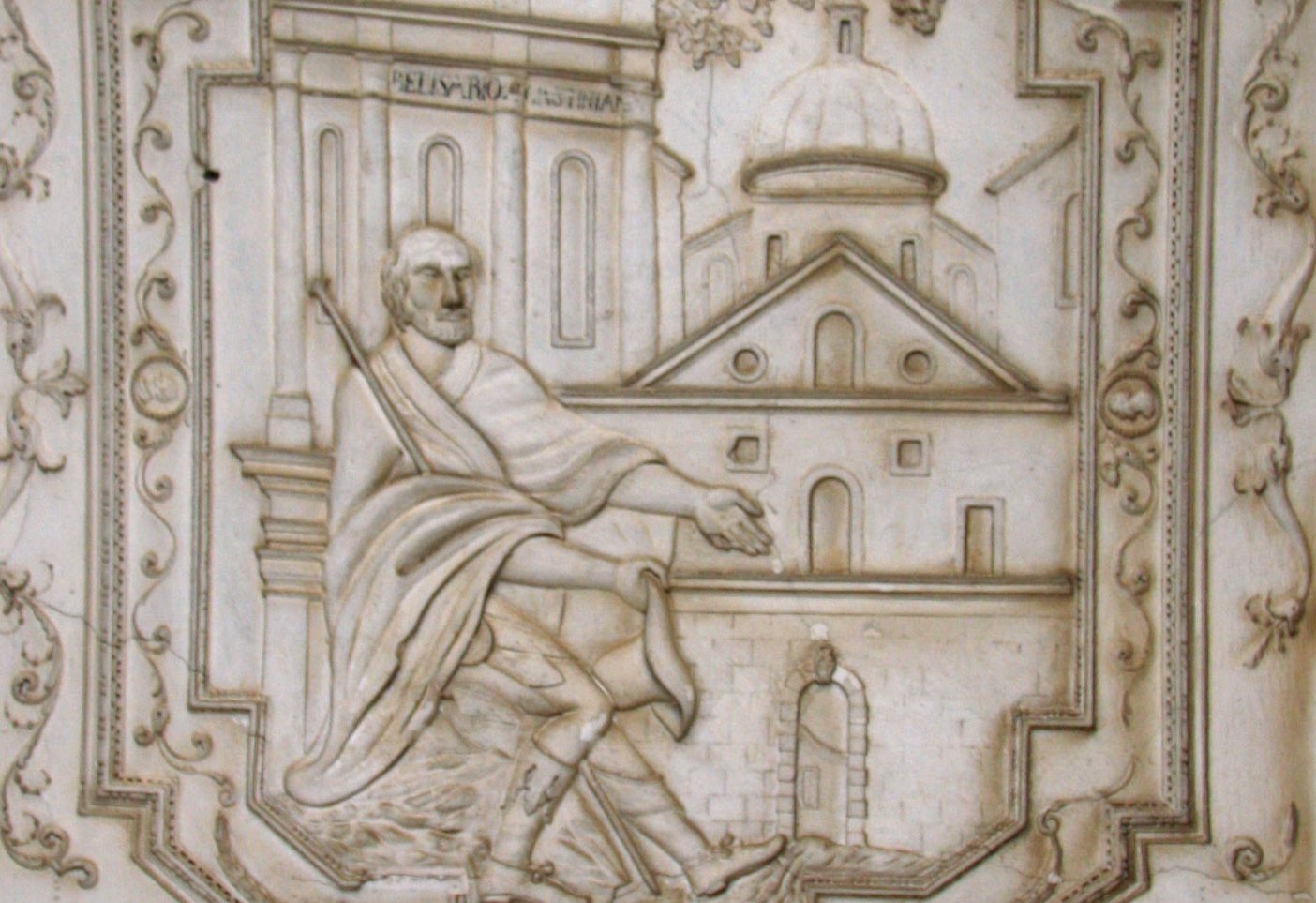 Michael Wilson, CC BY 2.0, Wikimedia Commons
Michael Wilson, CC BY 2.0, Wikimedia Commons
2. He Did What Thracians Do
Belisarius joined the Byzantine army in his teens. While little is known about his early training or campaign experiences, he evidently caught the attention of an important figure at a pivotal time for the empire.
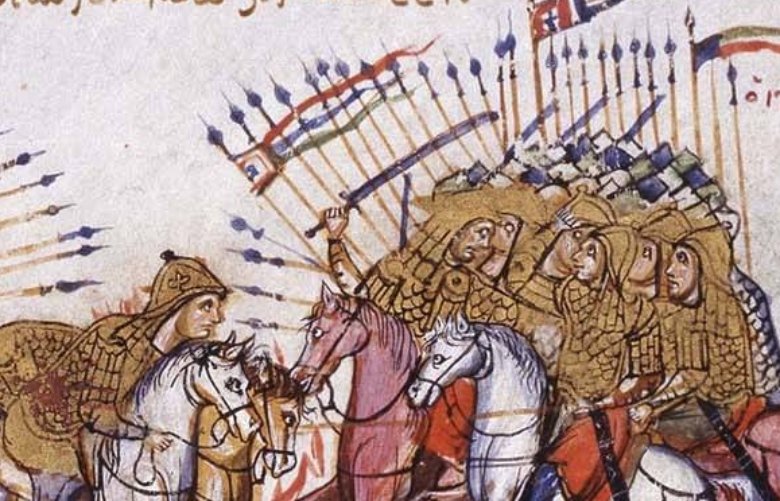 Unknown Author, Wikimedia Commons
Unknown Author, Wikimedia Commons
3. He Got A Good Posting
The emperor Justin ascended to the Byzantine throne in Constantinople in 518. From peasant origins in Thrace, the new emperor was perhaps wary of the snake pit of imperial politics in the capital city. He staffed his bodyguard with men from his home province. One of these was Belisarius.
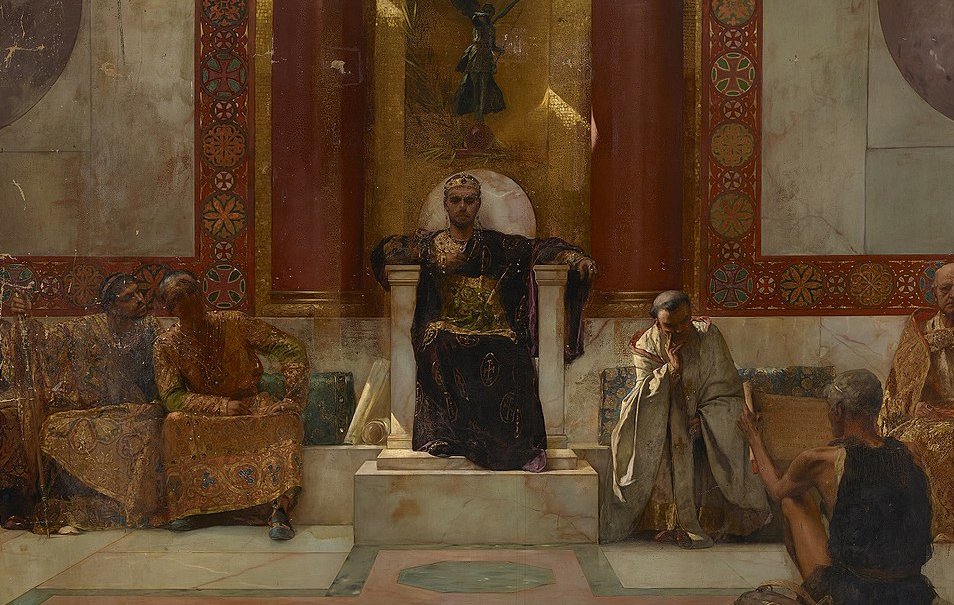 Jean-Joseph Benjamin-Constant, CC BY-SA 4.0, Wikimedia Commons
Jean-Joseph Benjamin-Constant, CC BY-SA 4.0, Wikimedia Commons
4. He Quickly Moved Up The Ladder
Impressed with the young Belisarius’s loyalty, the Emperor Justin authorized Belisarius to form his own separate bodyguard regiment. This formidable grouping would be composed of many of the finest warriors of the empire, equipped with the best weapons from the imperial armorers. Pleased with the path his career was taking, Belisarius met someone who would take things to a whole new level.
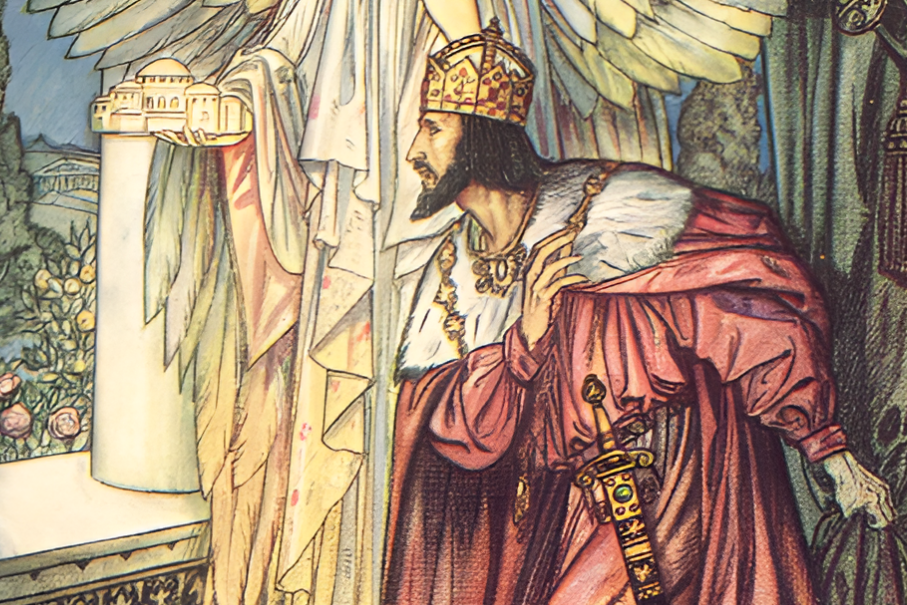 Herbert Cole, Wikimedia Commons
Herbert Cole, Wikimedia Commons
5. She Was A Handful
Around this time, Belisarius met a woman in Constantinople named Antonina. Portrayed by history as a well-known figure in the capital’s nightlife, Antonina had no shortage of rumors swirling about what she got up to. Whether the gossip had any truth to it, one thing was clear: Antonina had woven a spell on the promising young army officer.
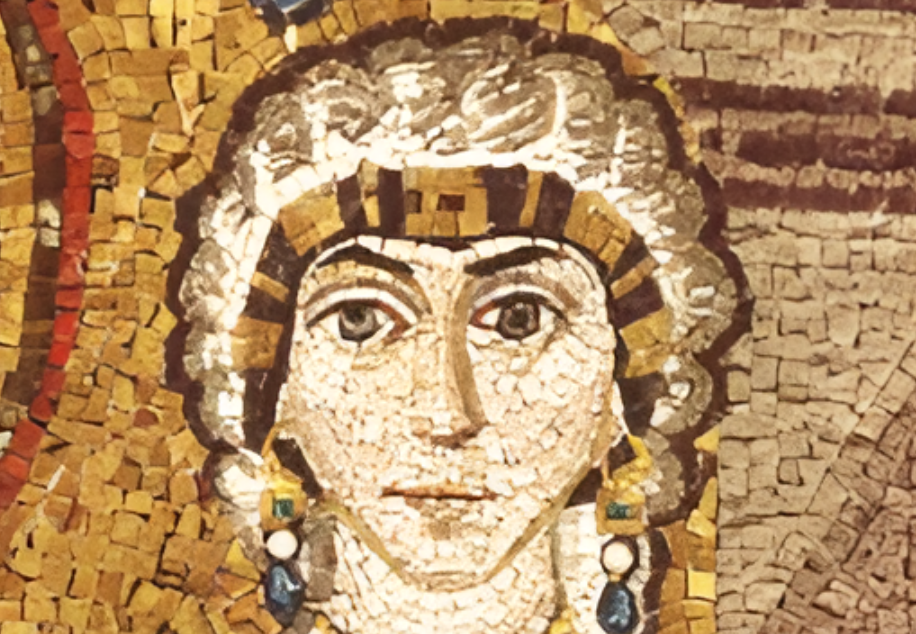 Unknown Author, Wikimedia Commons
Unknown Author, Wikimedia Commons
6. He Married Into Influence
Belisarius and Antonina married not long after this. Belisarius seems to have mostly looked the other way while Antonina carried on her social life much as before. But there was one important friend of Antonina’s that would soon help Belisarius take the next step in his career.
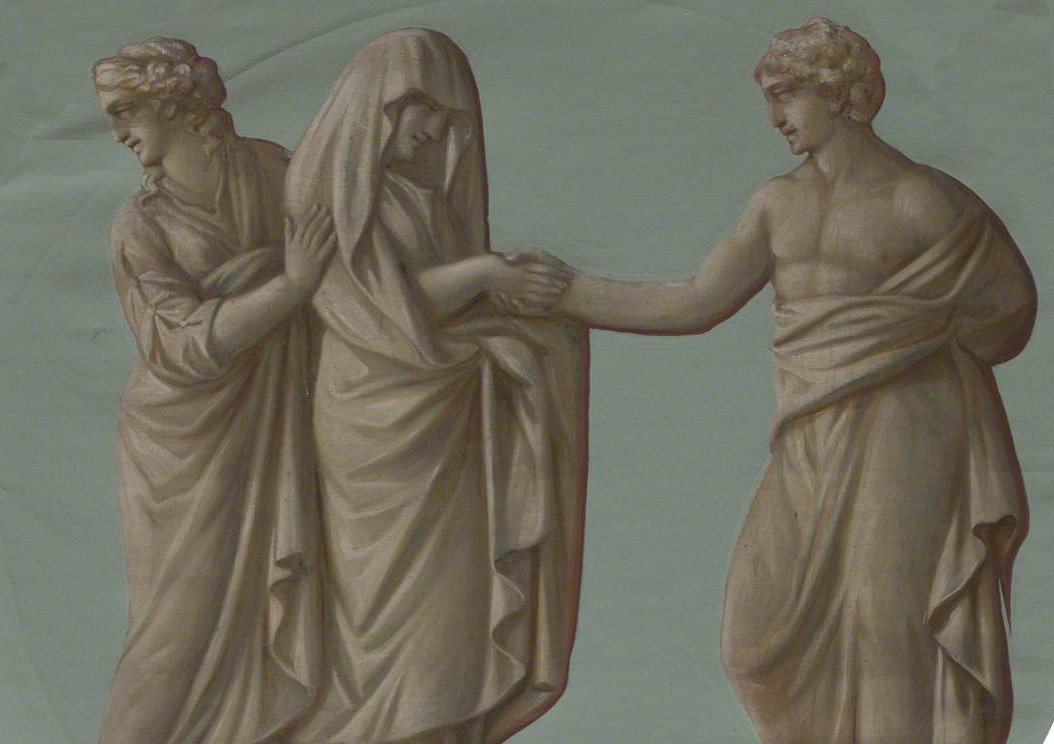 National Trust, Wikimedia Commons
National Trust, Wikimedia Commons
7. His Wife Had Friends In High Places
Antonina was close friends with Theodora, the mercurial wife of Justinian, next in line for the imperial throne. With the health of the aging Emperor Justin on a clear down-slope, it was obvious that the enterprising Justinian and Theodora would soon take the reins. But Justinian wasn’t waiting for the official seal of approval to begin asserting his will on national affairs.
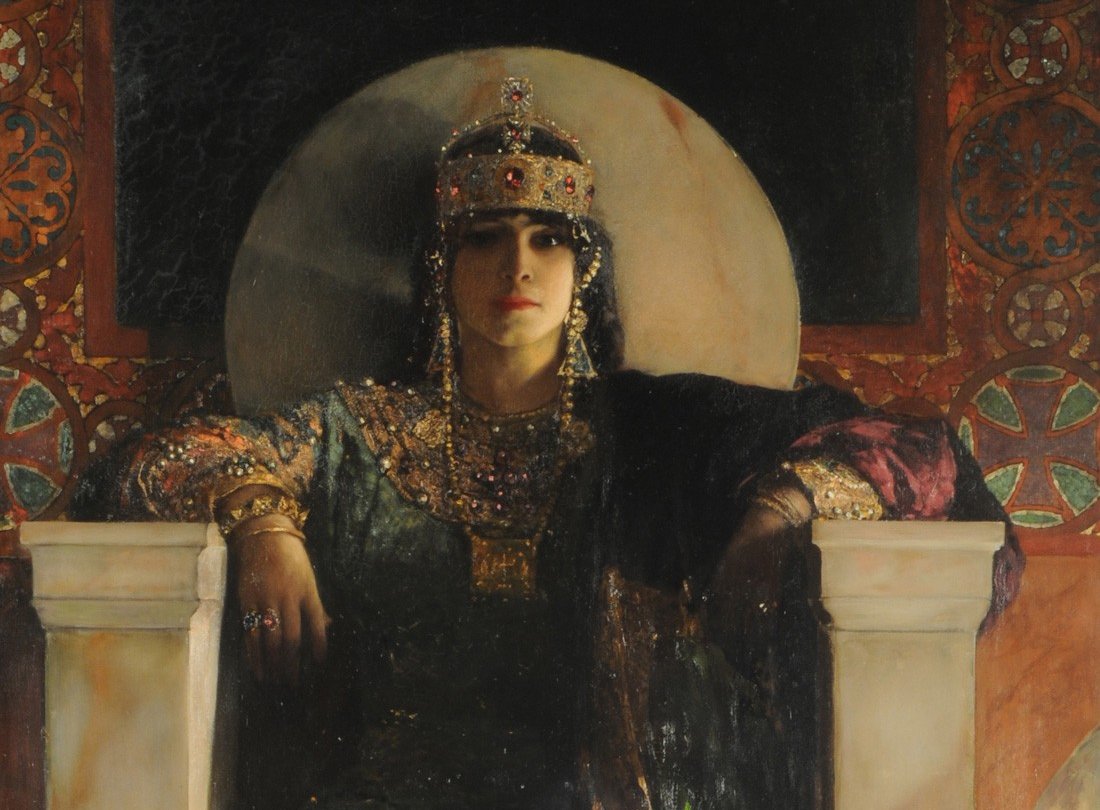 Jean-Joseph Benjamin-Constant, Wikimedia Commons
Jean-Joseph Benjamin-Constant, Wikimedia Commons
8. He Came Highly Recommended
Antonina and Theodora were already well known for their machinations behind the scenes. When the two became aware that Justinian was choosing officers to lead expeditions to the east to confront the Persians, Theodora immediately recommended that Justinian choose Belisarius.
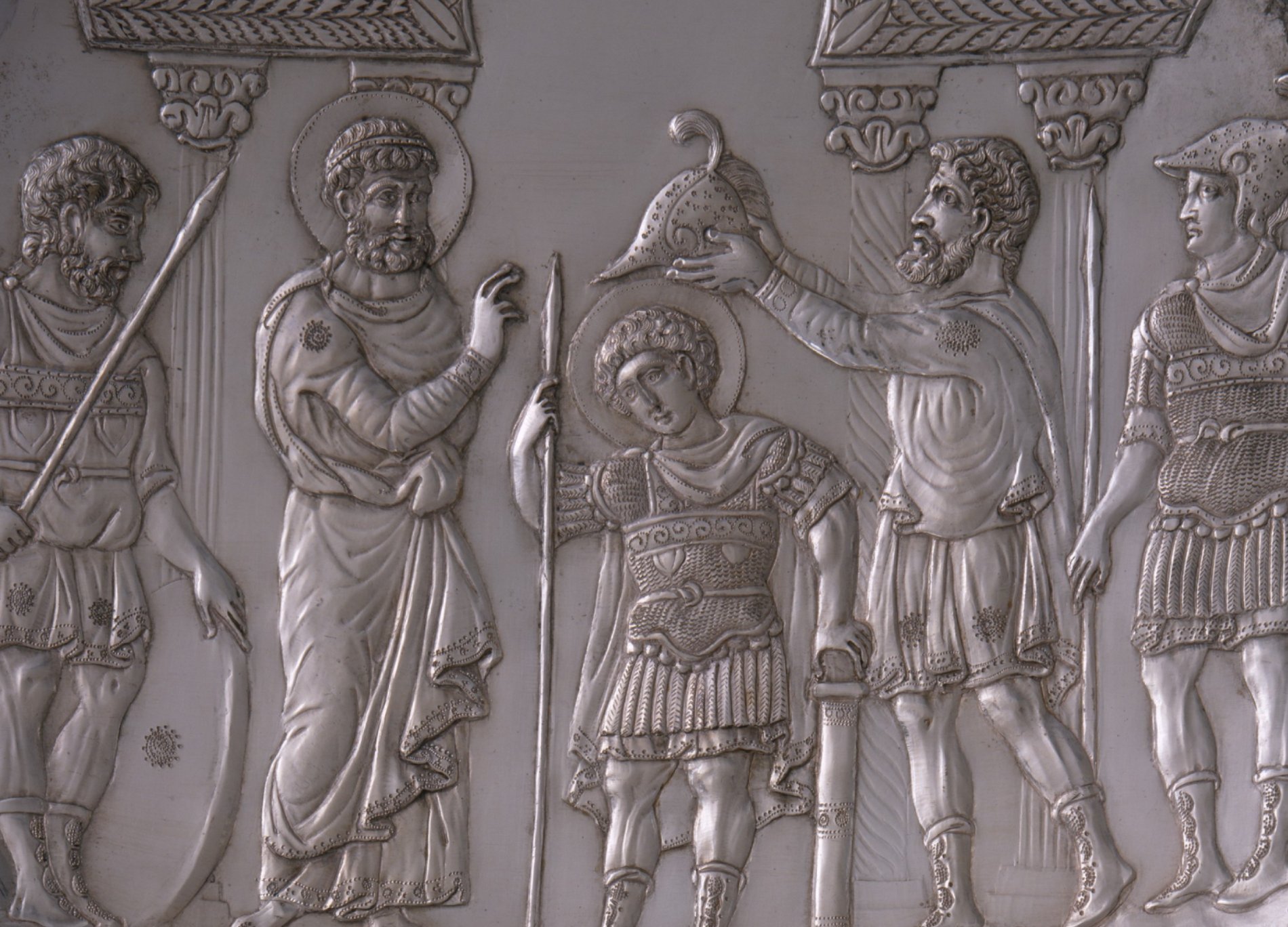 Metropolitan Museum of Art, CC0, Wikimedia Commons
Metropolitan Museum of Art, CC0, Wikimedia Commons

History's most fascinating stories and darkest secrets, delivered to your inbox daily.
9. He Headed East
Accustomed to leading his troop of heavily armed bodyguards through the streets of the Byzantine capital, Belisarius looked with renewed vigor at the more challenging task of securing the borders of the far-flung empire. Confident in his skills, and looking to test his mettle against the Persians, he headed eastward with his army.
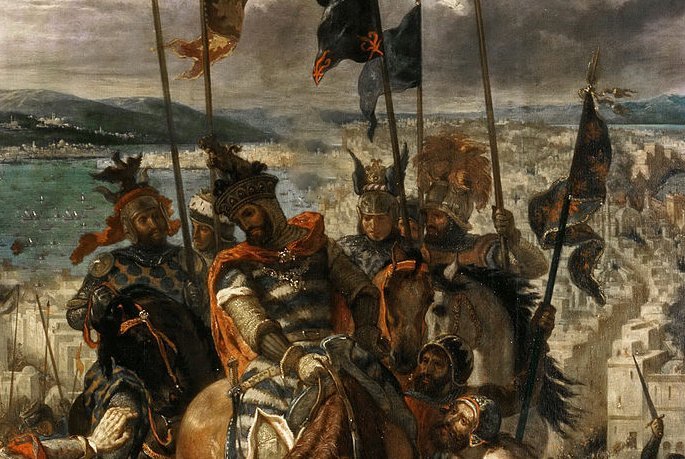 Eugène Delacroix, Wikimedia Commons
Eugène Delacroix, Wikimedia Commons
10. He Was Greeted Rudely
Unfortunately, Belisarius’s first combat experiences didn’t go very well. Persian forces gained the upper hand time after time as Belisarius and other inexperienced commanders struggled to learn the terrain and adjust their tactics. By this time a long-awaited event took place back home.
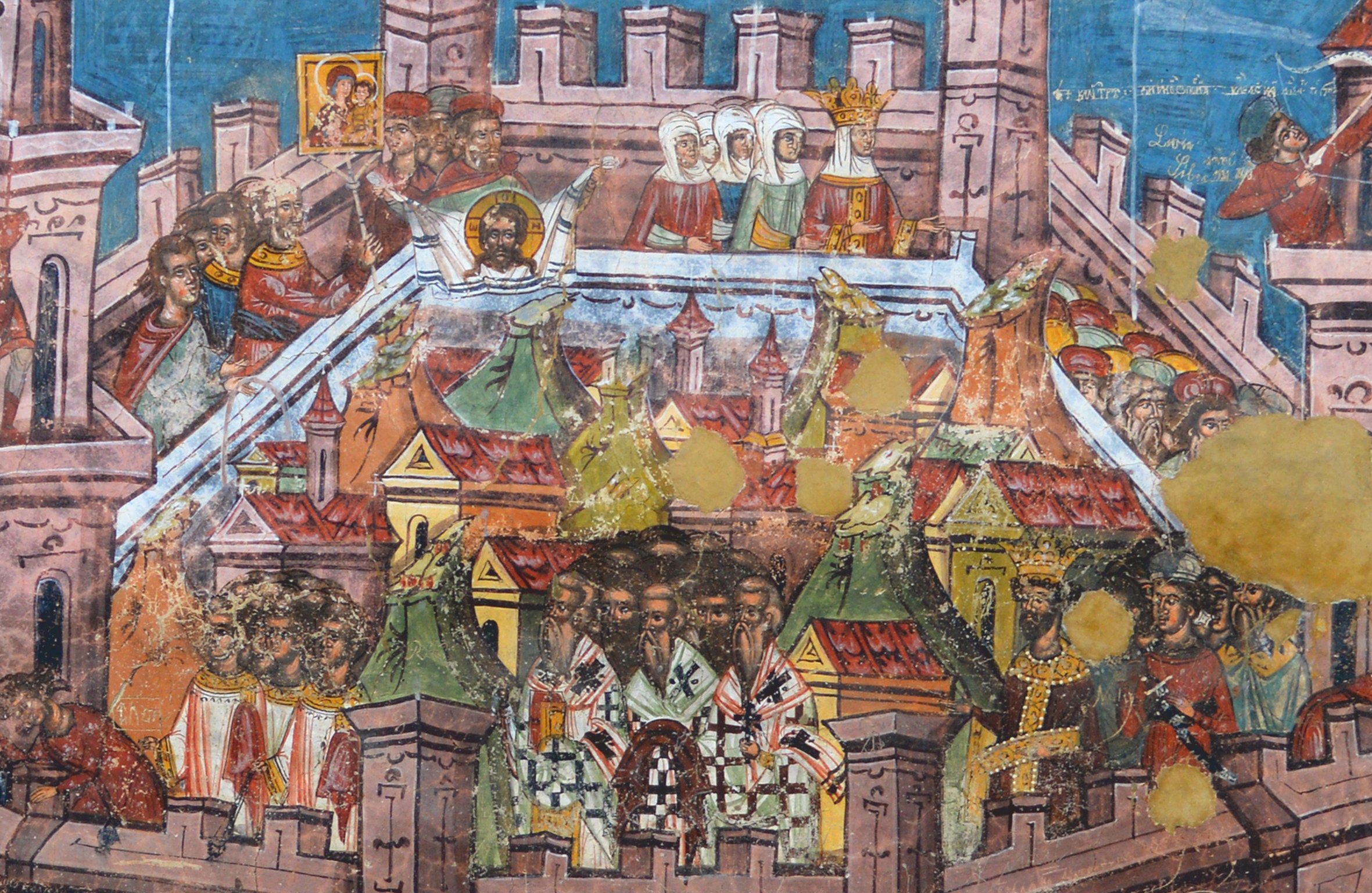 DimiTalen, CC0, Wikimedia Commons
DimiTalen, CC0, Wikimedia Commons
11. He Saw The Transfer Of Power
In 527, the emperor Justin finally took his last breaths. Justinian was now the Byzantine emperor—and he was furious with how things were going against the Persians. He decided to reorganize the command structure, including the role of Belisarius.
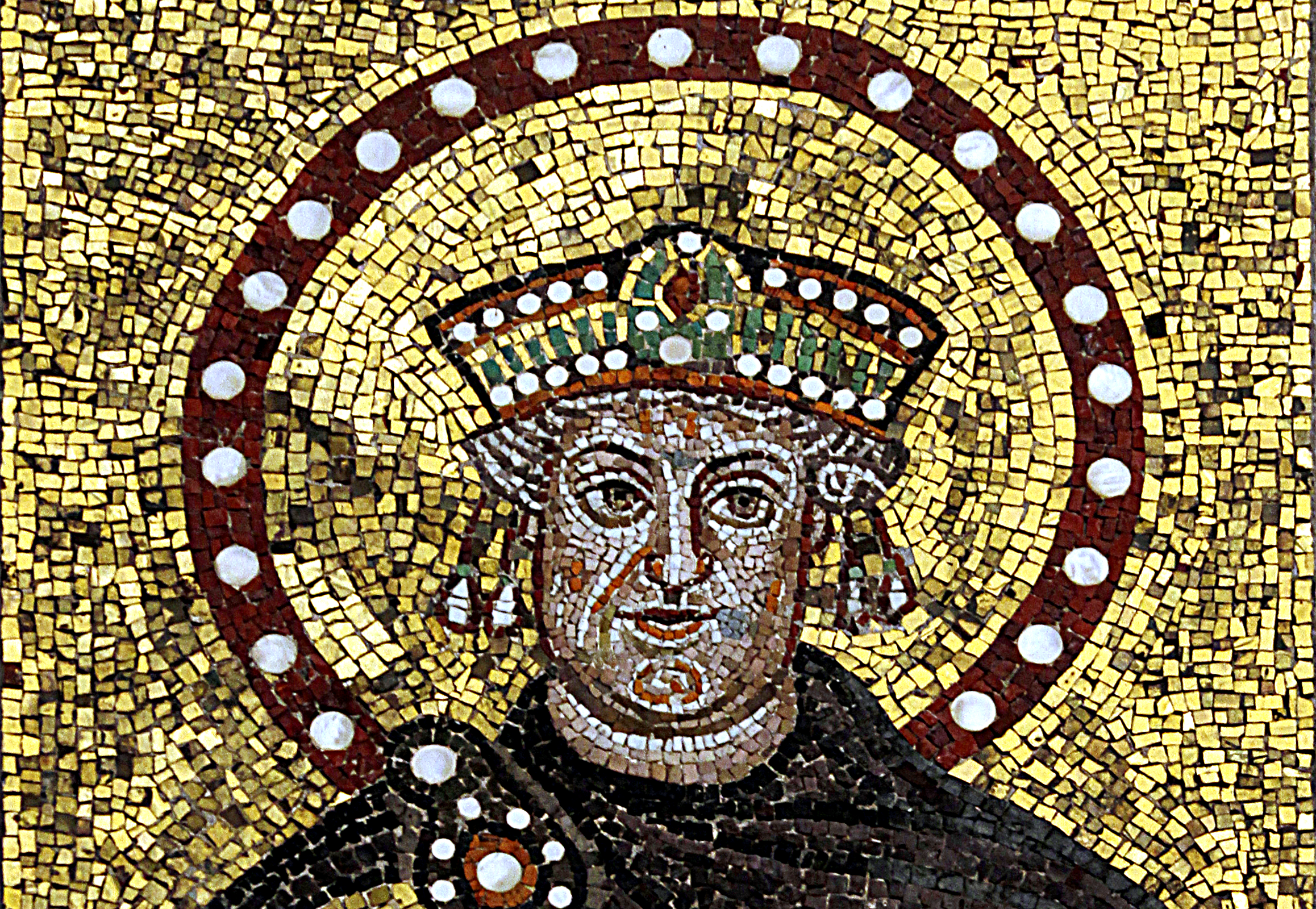 José Luiz Bernardes Ribeiro, CC BY-SA 4.0, Wikimedia Commons
José Luiz Bernardes Ribeiro, CC BY-SA 4.0, Wikimedia Commons
12. He Had A New Role
Anxious to turn the tables on the Persians, Justinian divided the command of his eastern forces into East and North, appointing Belisarius commander of the East. As Belisarius inspected the new reinforcements, he noticed someone who looked out of place.
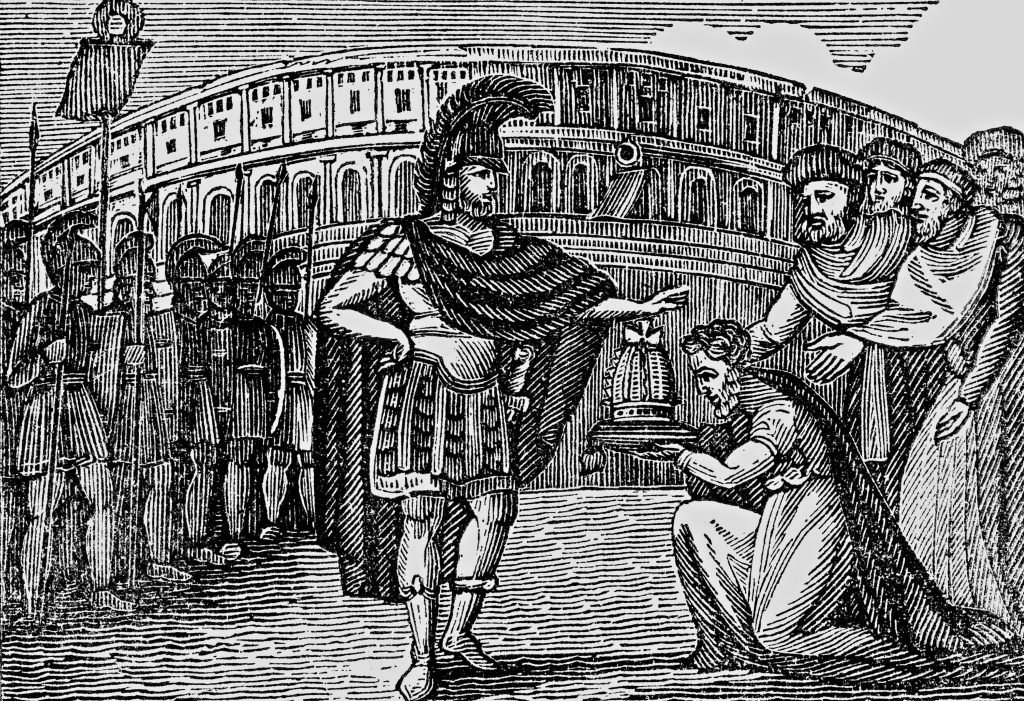 UniversalImagesGroup, Getty Images
UniversalImagesGroup, Getty Images
13. He Had An Advisor
The new guy at headquarters was named Procopius. Appointed by Justinian as an advisor (adsessor), Procopius was to accompany Belisarius in the field. Wherever he went, Procopius went. Whatever Procopius saw, he was to record in writing. And with Belisarius and his forces about to swing into action, Procopius would soon be scribbling as fast as he could!
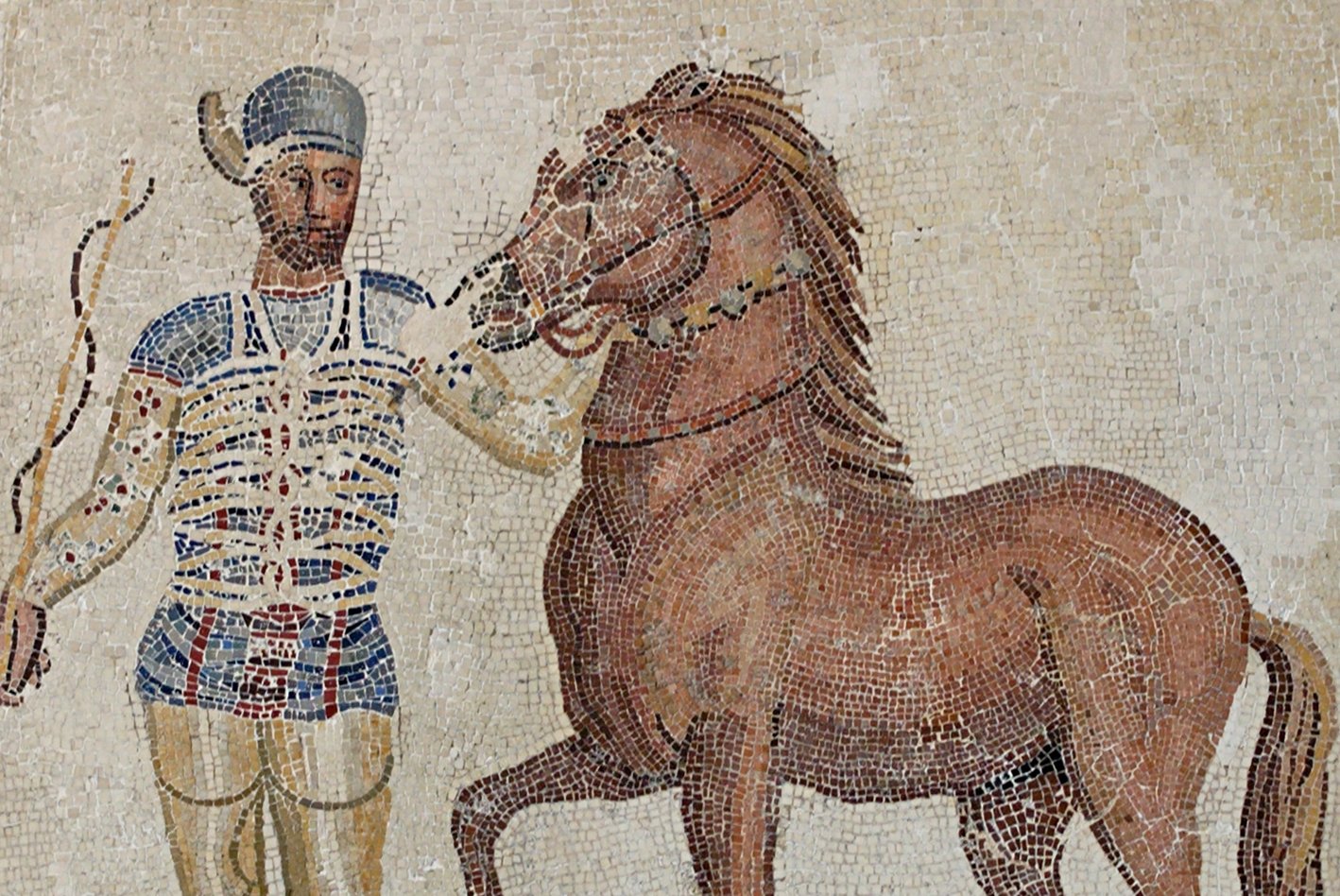 Palazzo Massimo alle Terme, Wikimedia Commons
Palazzo Massimo alle Terme, Wikimedia Commons
14. He Took The Initiative
Looking to take the offensive, Belisarius immediately led his men into Persian territory. They began to construct a huge fortress near the town of Thannuris in present-day northeastern Syria. Belisarius calculated that this bold statement would soon draw an aggressive Persian countermove. He was right on that score, but he didn’t realize how aggressive it would be.
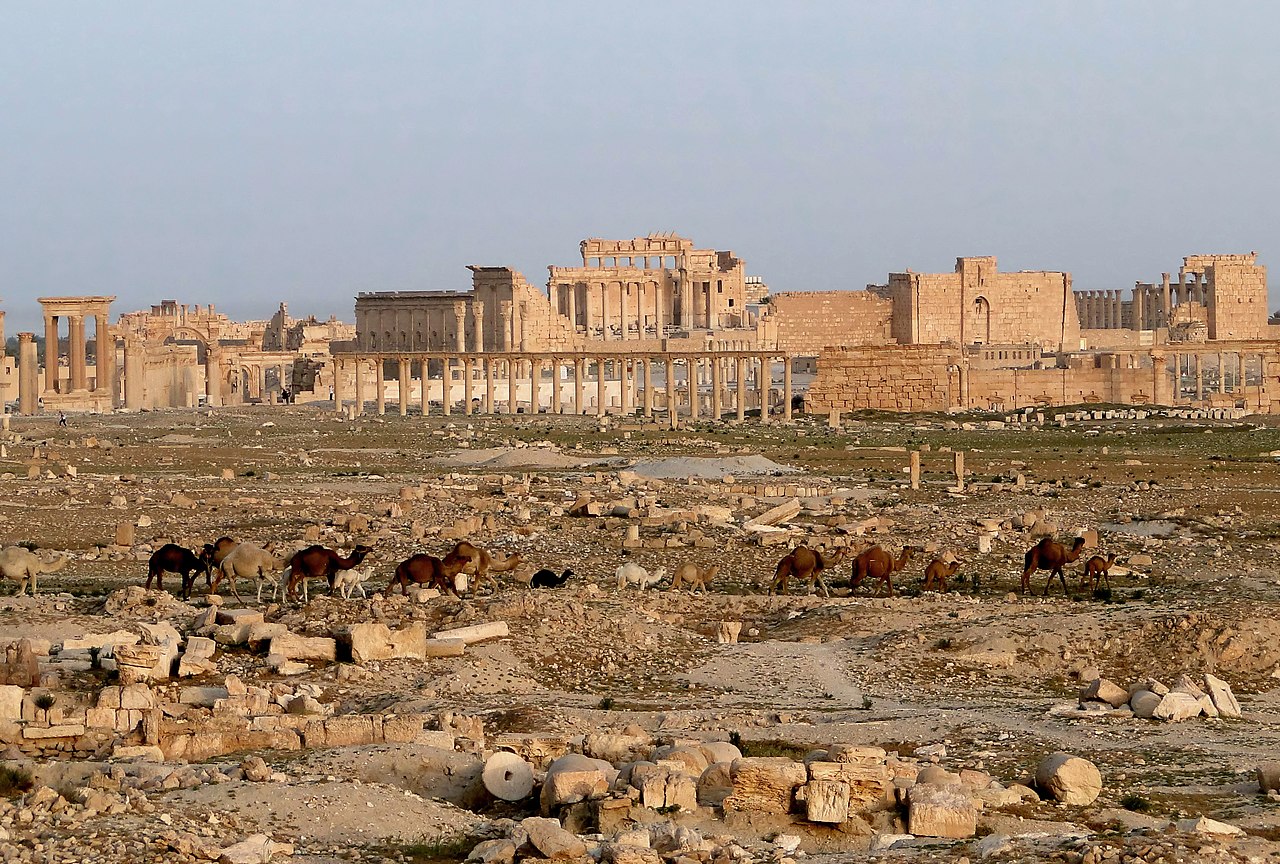 Bernard Gagnon, CC BY-SA 3.0, Wikimedia Commons
Bernard Gagnon, CC BY-SA 3.0, Wikimedia Commons
15. He Had Nothing To Show For His Efforts
Belisarius thought he had the Persians exactly where he wanted them, but instead, he and his men got sucked into their opponents’ web of deception. The huge Persian force dug pits and trenches that trapped many of the Byzantine soldiers.
Suffering heavy casualties, Belisarius wisely ordered a retreat. Leading his men away from the field of conflict, Belisarius was determined to even the score.
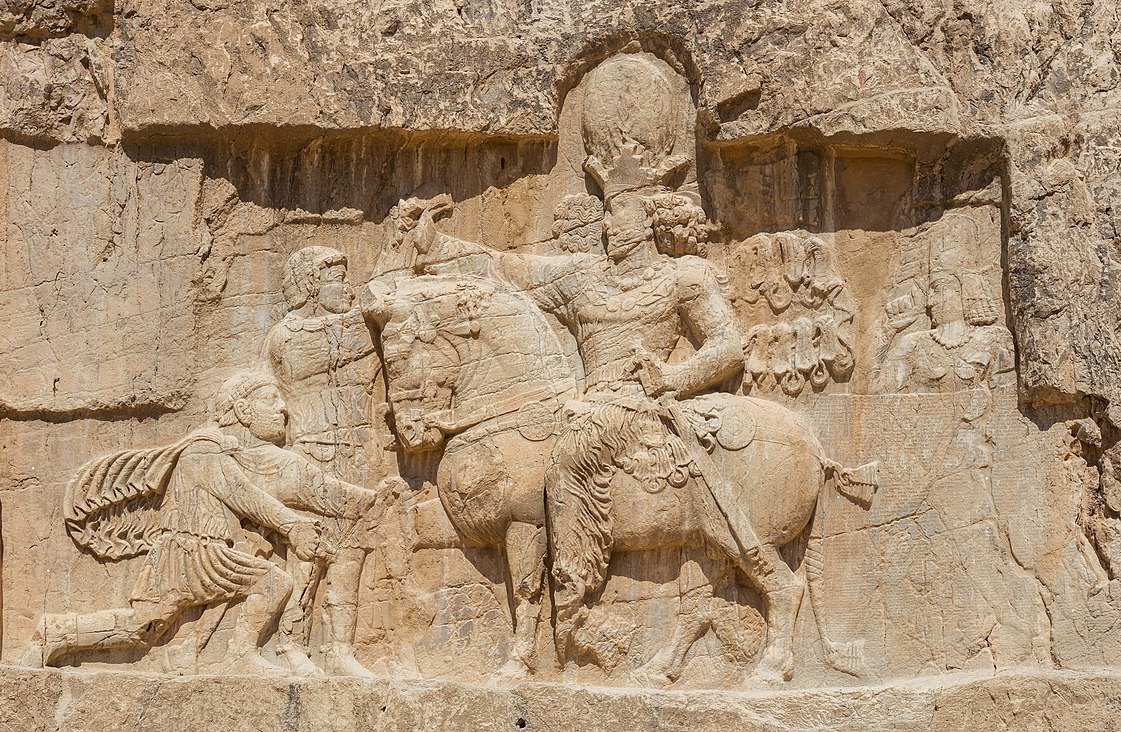 Diego Delso, CC BY-SA 4.0, Wikimedia Commons
Diego Delso, CC BY-SA 4.0, Wikimedia Commons
16. He Tried To Negotiate
Belisarius and his army met the Persians two years later at Dara. Knowing they were vastly out-numbered, Belisarius pondered his options and sent out a letter to the Persian commander offering to negotiate a peaceful solution to the dispute. He wouldn’t have to wait long for a reply.
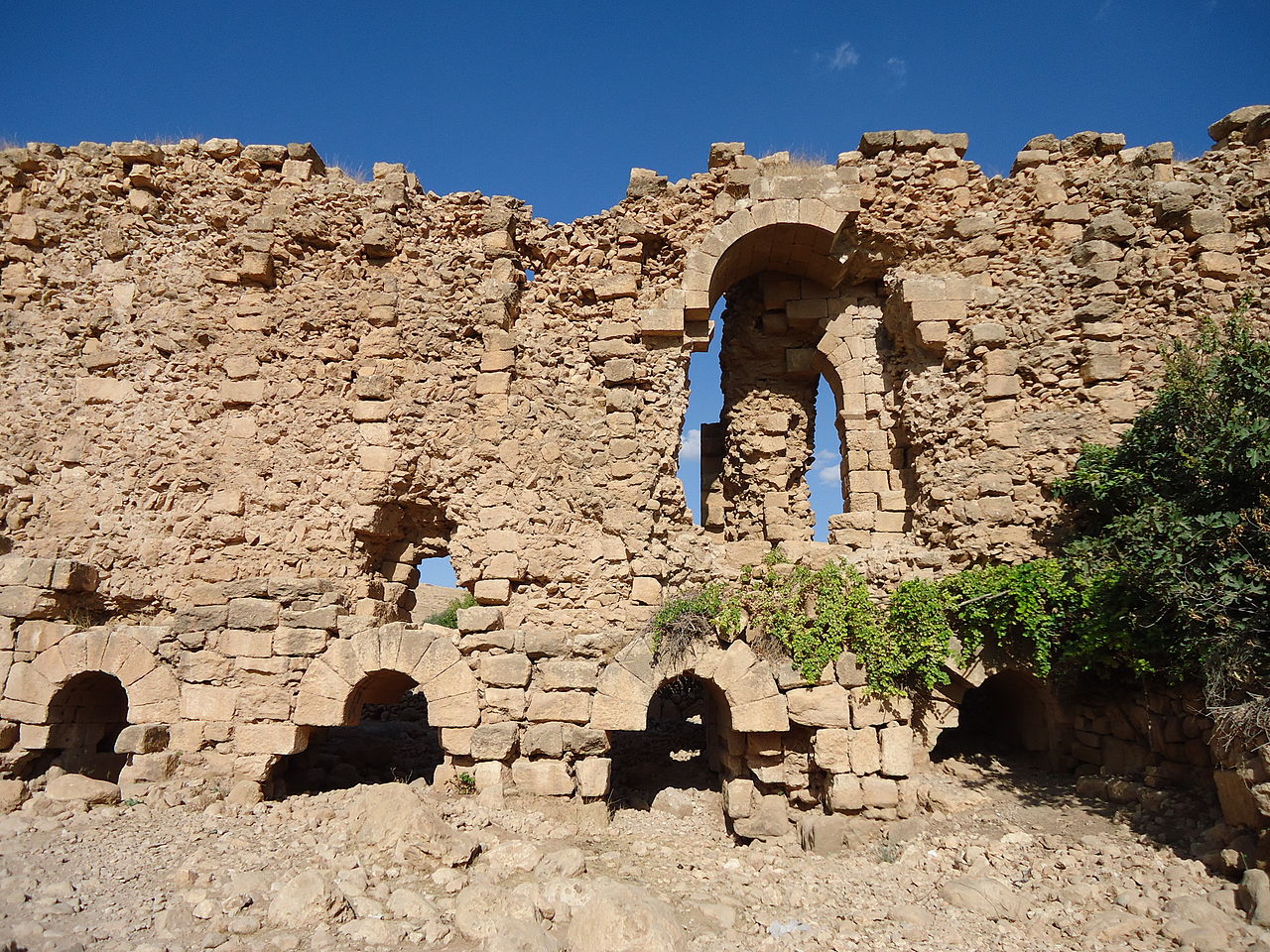 Procopius, CC BY-SA 3.0, Wikimedia Commons
Procopius, CC BY-SA 3.0, Wikimedia Commons
17. He Wasn’t Ready To Give Up
The Persian commander scoffed at the letter and immediately pressed forward to finish off the Byzantines. Already confident of their supremacy, the Persians figured the note was nothing more than an act of cowardice by an enemy ready to throw in the towel. But it was the Persians who were in for the shock of their lives.
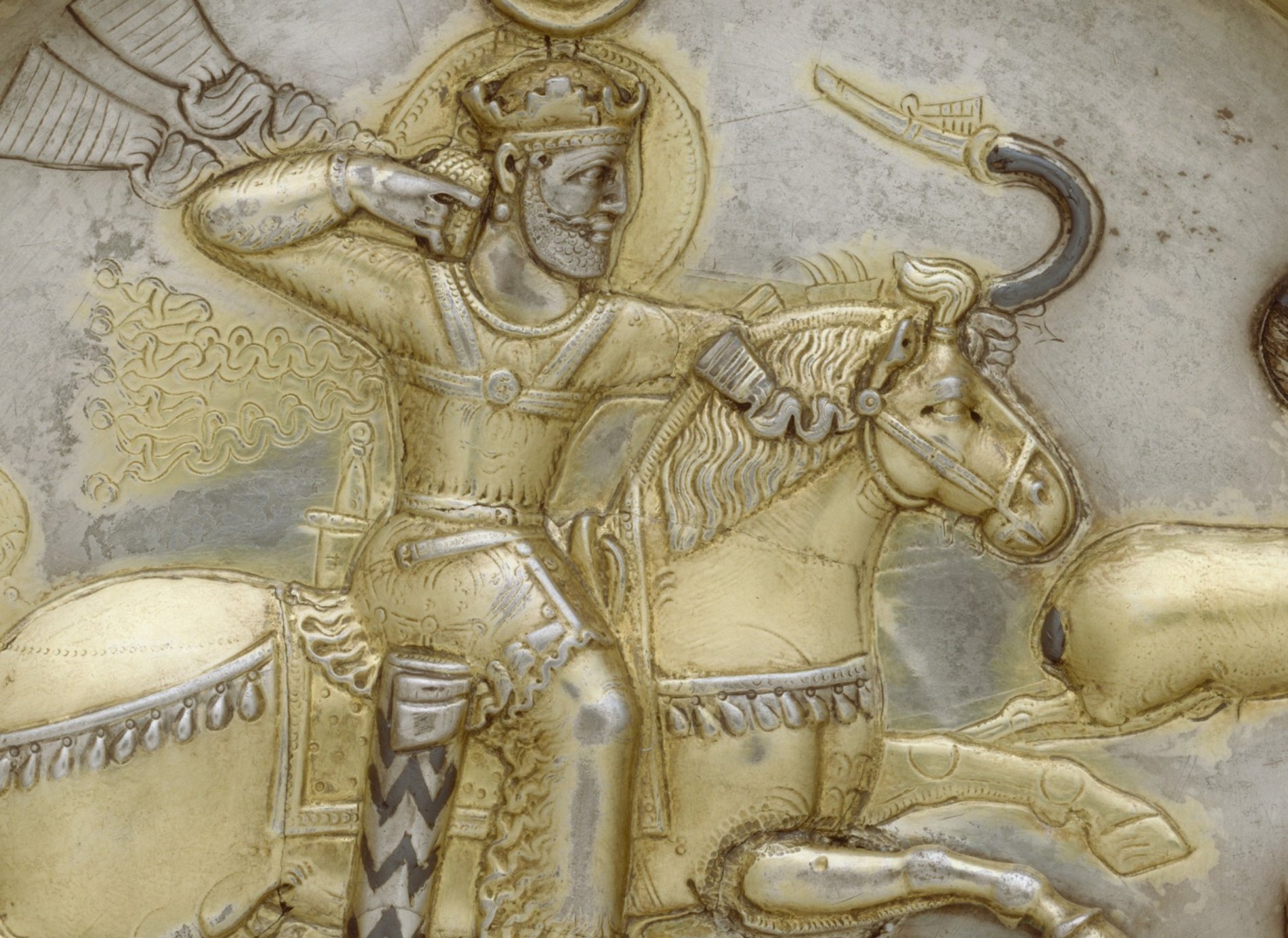 Unknown Author, Wikimedia Commons
Unknown Author, Wikimedia Commons
18. He Evened The Score
Getting his behind kicked by the Persians for the previous two years had smartened Belisarius up. Using the same methods that the Persians had used two years before, the Byzantines used ditches and other obstacles to stymie the enemy before launching swift counterstrikes of their own.
By nightfall, Belisarius had mastery over the field of Dara. But the sense of triumph would be short-lived.
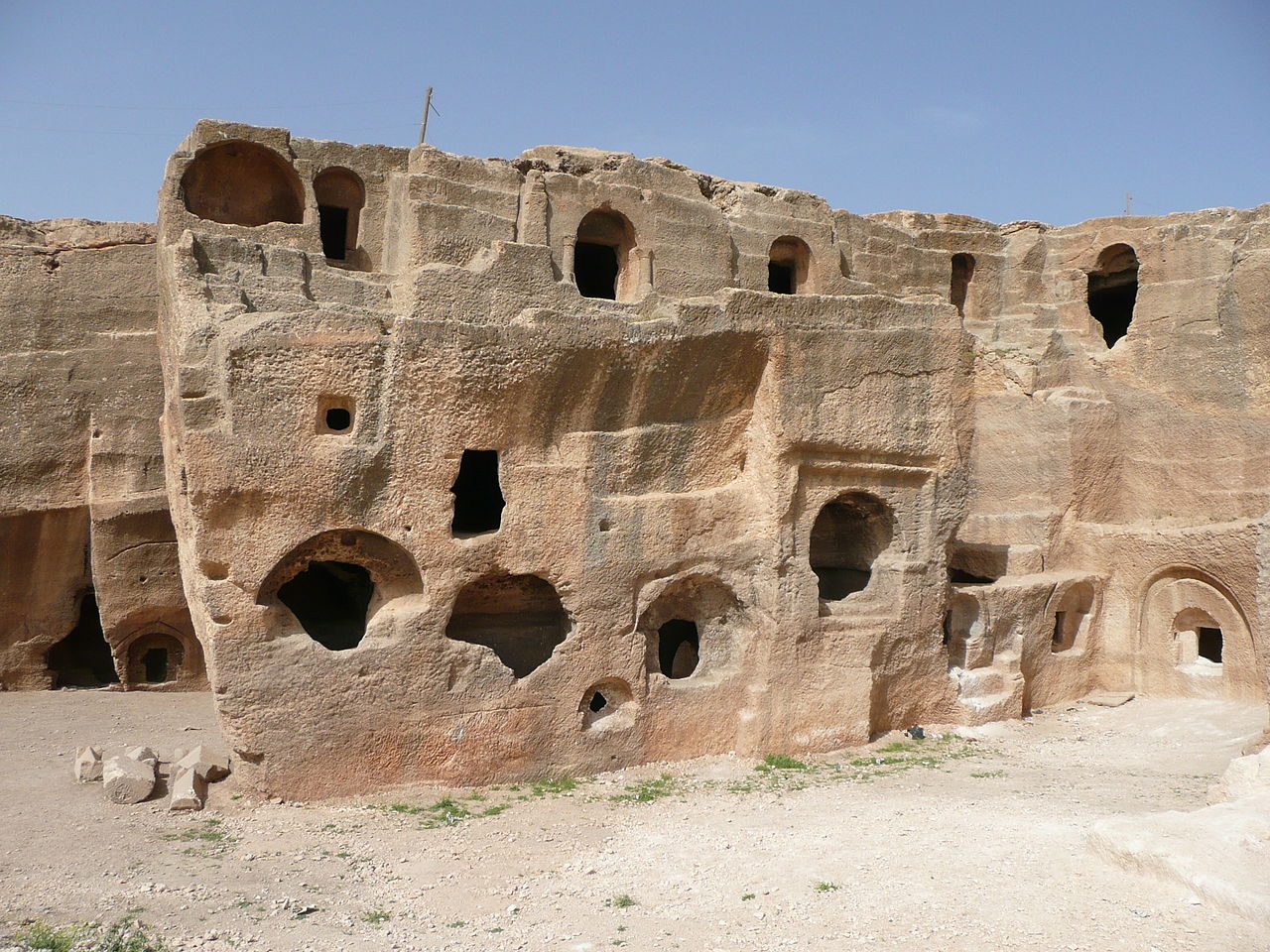 Nevit Dilmen, CC BY-SA 3.0, Wikimedia Commons
Nevit Dilmen, CC BY-SA 3.0, Wikimedia Commons
19. He Didn’t Like The Situation
The following year, the Byzantines were pursuing their enemies back into Persia. Confident of victory, and eager to confront the Persians before they retreated too far into their home territory, Belisarius’ subordinates urged an immediate attack. But Belisarius saw something they didn’t.
20. They Twisted His Arm
With the confrontation looming that Easter Sunday near Callinicum, Belisarius knew his men —who had been fasting—would be in no shape for fighting. But with his angry men in aggressive overdrive, he also knew it wasn’t the time for a full-blown mutiny. Reluctantly, he agreed to go on the offensive. What happened next would haunt him for years to come.
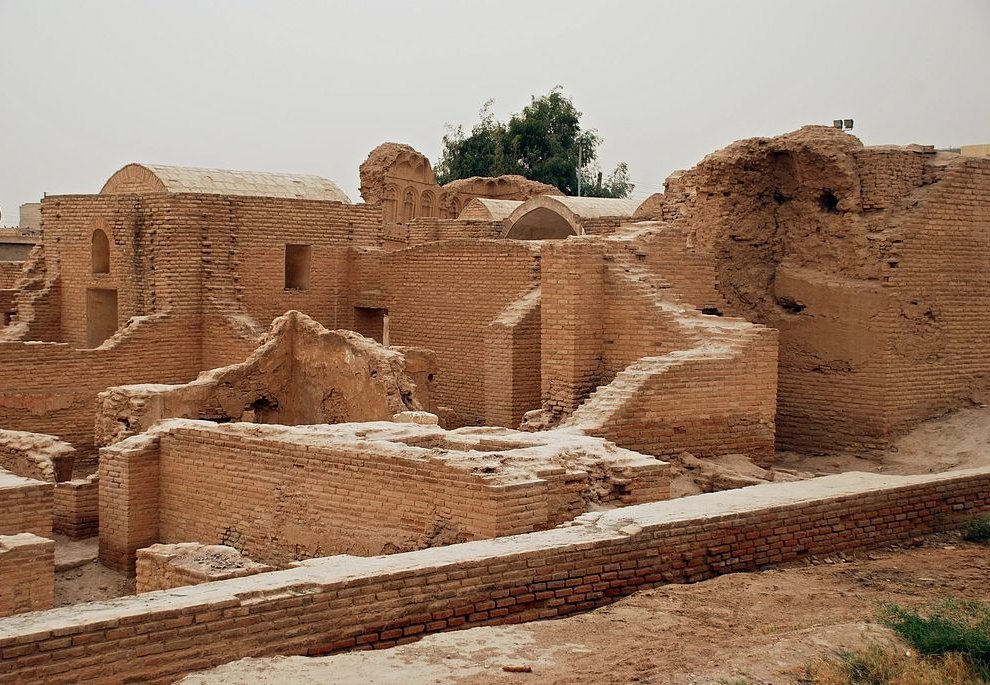 Bertramz, CC BY 3.0, Wikimedia Commons
Bertramz, CC BY 3.0, Wikimedia Commons
21. He Stared Defeat In The Face
There were no masterful tactical moves or displays of brilliance at Callinicum, only a long day of relentless and ugly fury. With their backs against the waters of the Euphrates River, the Byzantine forces barely avoided total annihilation. Although they had inflicted heavy losses on the Persians, there was no getting around the cold reality of the defeat. The news would soon get even worse.
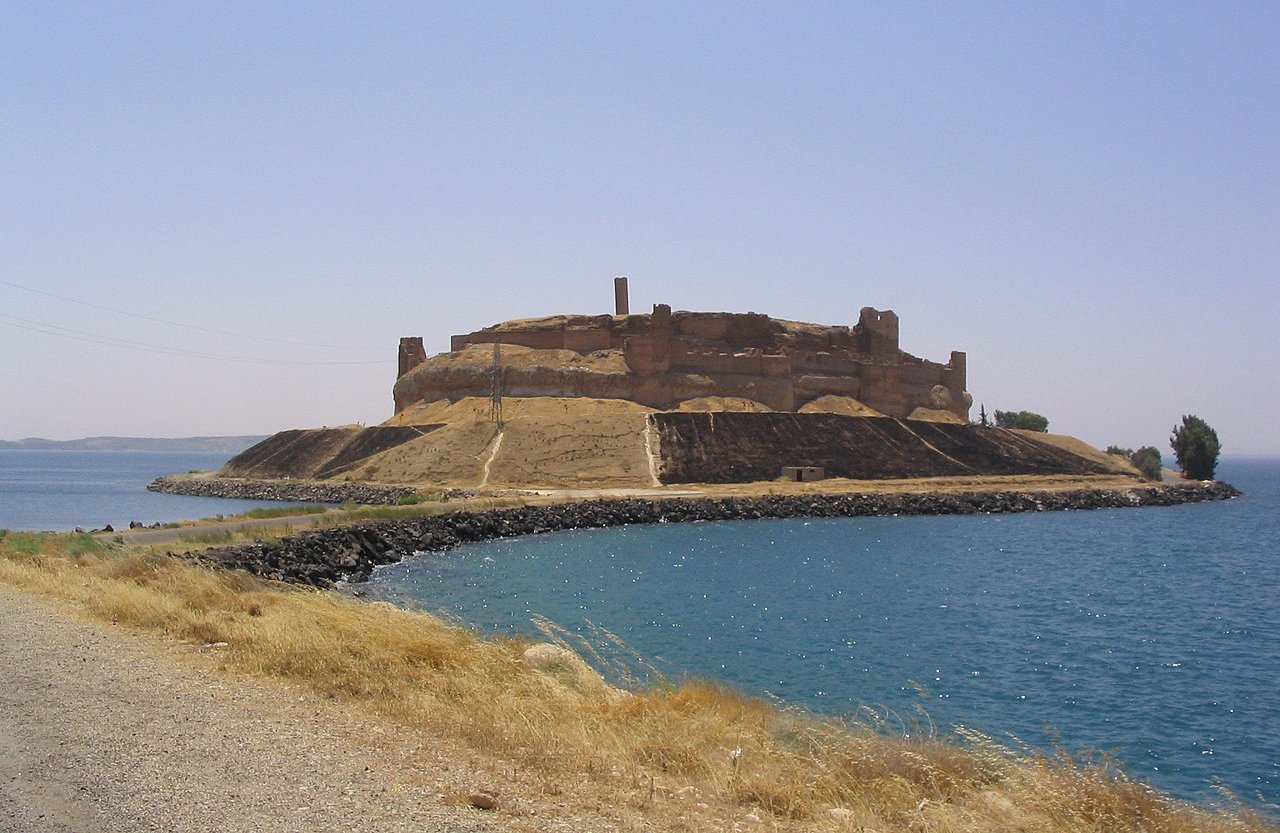 Eleman, CC BY-SA 3.0, Wikimedia Commons
Eleman, CC BY-SA 3.0, Wikimedia Commons
22. He Was Charged
The fiasco at the front convinced Justinian to seek a negotiated settlement with the Persians. But the authorities were far from finished with Belisarius. The general was summoned back to the capital to face a charge of incompetence for his setbacks. With cruel jokes about his ineptitude ringing in his ears, Belisarius prepared to face his accusers head on.
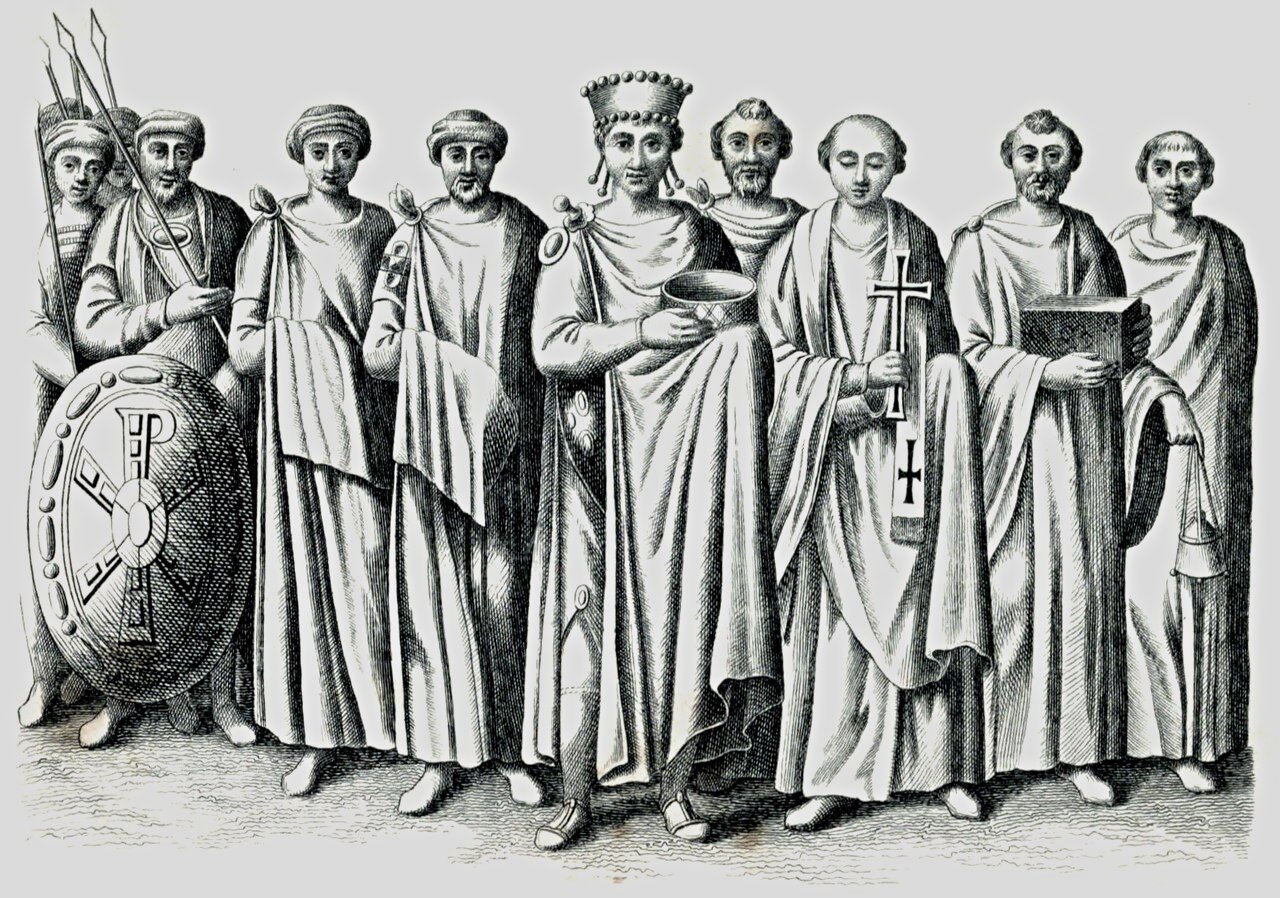 Nikolaos Alamanni, Wikimedia Commons
Nikolaos Alamanni, Wikimedia Commons
23. He Was Set Free
Determined to avoid being made a scapegoat, Belisarius vigorously defended his actions. He told prosecutors the attack had been made against his advice. Perhaps Procopius’s detailed recording of events helped Belisarius. In any case, he was cleared of the charge. Though relieved at the trial’s outcome, Belisarius worried about the chaotic political scene in the capital.
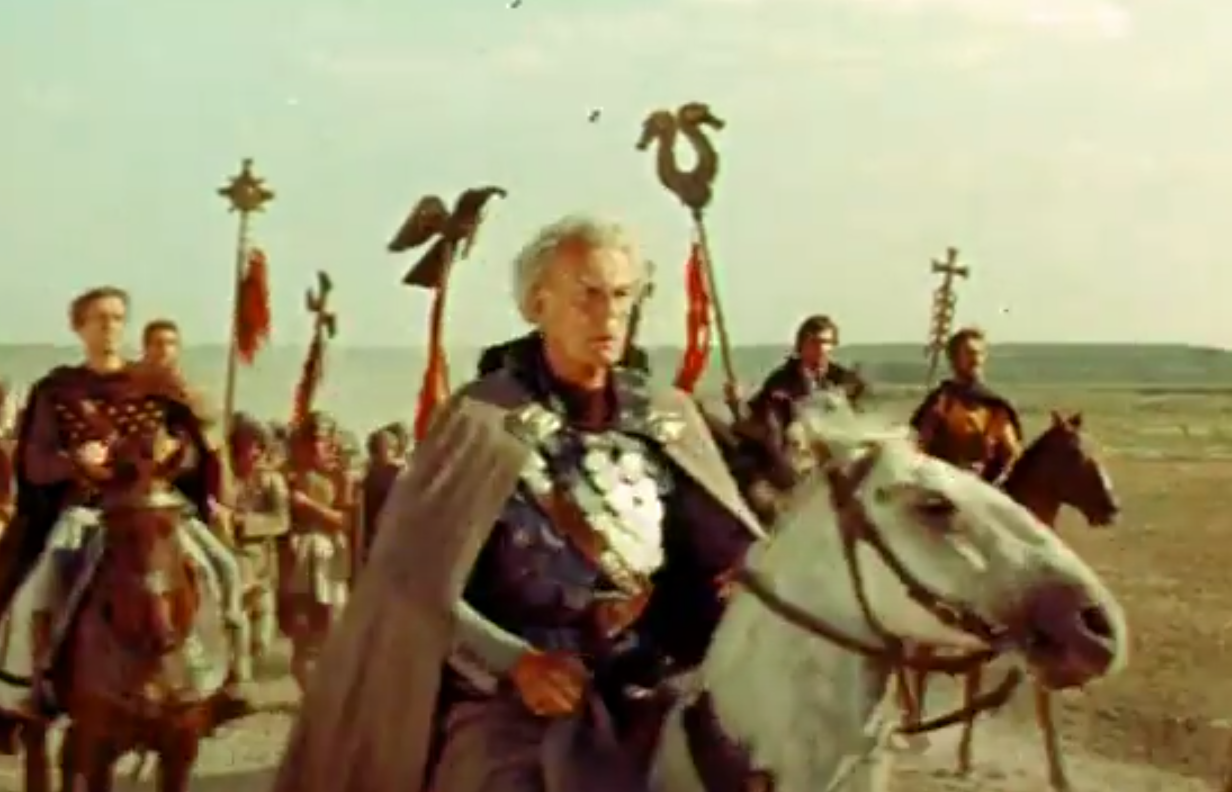 CCC Filmkunst, The Last Roman (1968)
CCC Filmkunst, The Last Roman (1968)
24. He Saw Trouble Brewing
Belisarius couldn’t fail to notice how much the situation had deteriorated in Constantinople during his years of absence. Various political factions were openly rebelling against Justinian’s rule. The rebel groups had taken over the main chariot-racing track in Constantinople, the Hippodrome, and were gaining in numbers. The situation was fast reaching a breaking point.
25. He Got An Urgent Request
With riots and arsons spreading across the city amid the escalating demands of the rebels, Belisarius received an urgent request from Justinian to disperse the unrest. With his years of experience as a leader of the imperial bodyguard, Belisarius understood the gravity of the situation. He was about to take drastic steps.
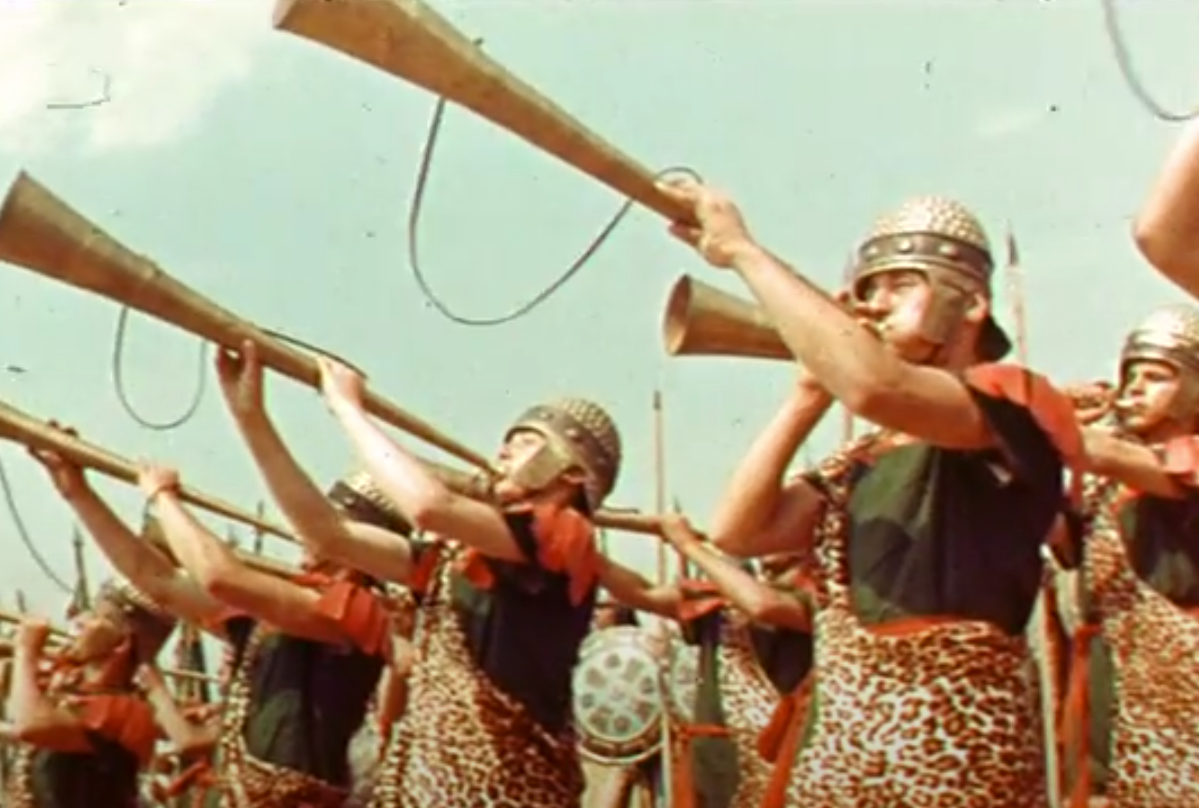 CCC Filmkunst, The Last Roman (1968)
CCC Filmkunst, The Last Roman (1968)
26. He Took Charge
Quickly organizing a force of men on foot accompanied by heavy cavalry, Belisarius approached the Hippodrome. When officials’ attempts to appease the rebels failed, Belisarius and his men moved in. What happened next would shock the populace.
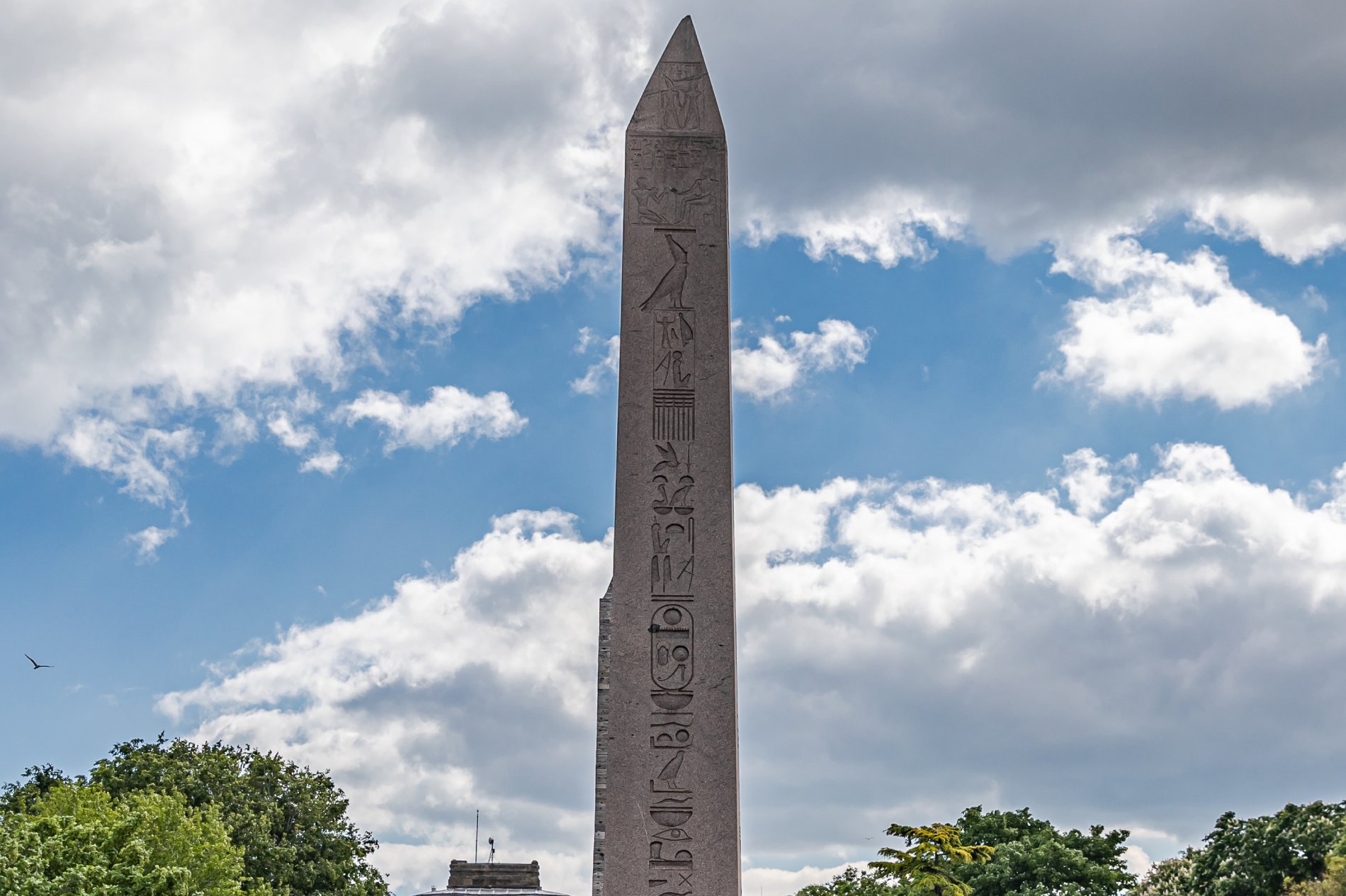 Ninara, CC BY 2.0, Wikimedia Commons
Ninara, CC BY 2.0, Wikimedia Commons
27. He Ordered His Men Forward
The looming tension in the Hippodrome finally burst forth. As the rebels scrambled in panicked confusion, Belisarius’ forces plunged into the crowd. Once unleashed, the mayhem couldn’t be put back in the bottle. But it was only at sundown as the dust settled that the full horror of the event began to sink in.
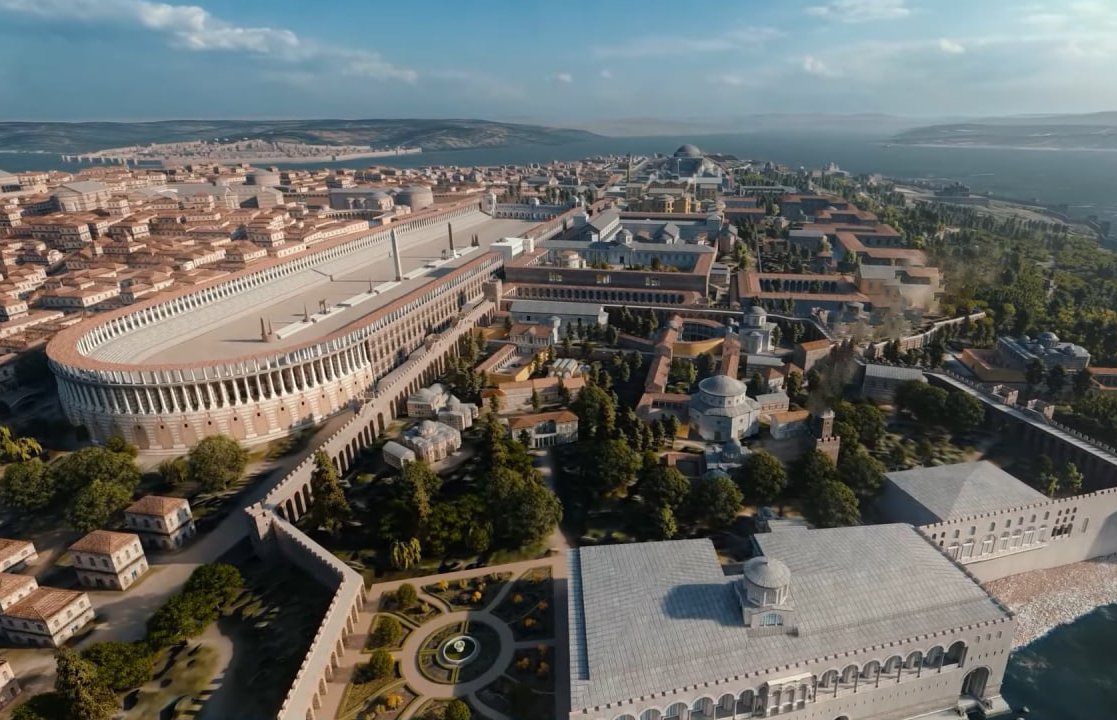 Hbomber, CC BY-SA 4.0, Wikimedia Commons
Hbomber, CC BY-SA 4.0, Wikimedia Commons
28. He Had Put Down The Uprising
It’s impossible to know the exact number, but most historians put the toll of the victims in the Hippodrome in the tens of thousands. Though it had been done at a terrifying cost, the uprising was crushed, and Justinian’s rule saved. Belisarius had also restored his reputation with a thankful emperor.
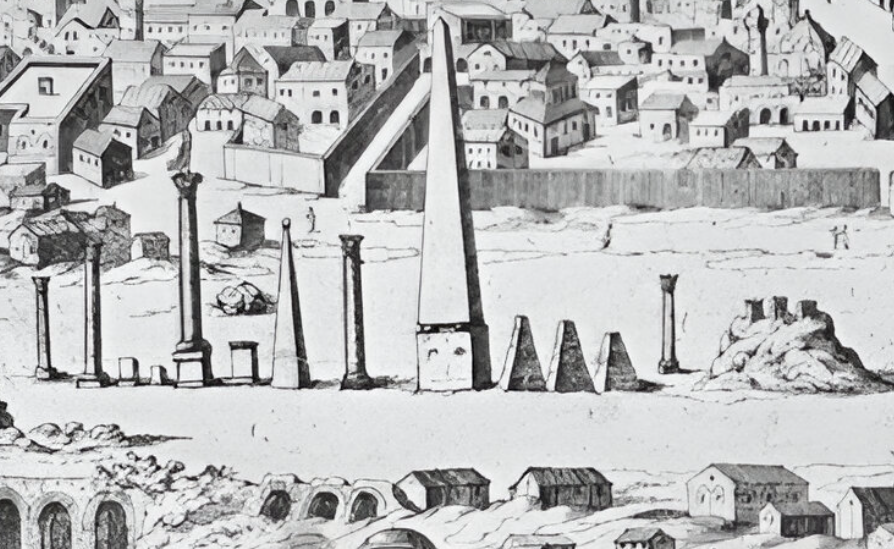 Unknown Auhtor, Wikimedia Commons
Unknown Auhtor, Wikimedia Commons
29. He Heard An Ambitious Plan
Belisarius was aware of Justinian’s dream of restoring Byzantine rule to North Africa, which had fallen under the control of a barbarian tribe called the Vandals. But even he was surprised to hear that Justinian wanted to take decisive action the following year. In the aftermath of that year’s riots, it wasn’t exactly a carnival atmosphere in Constantinople. Belisarius seized the opportunity to go abroad.
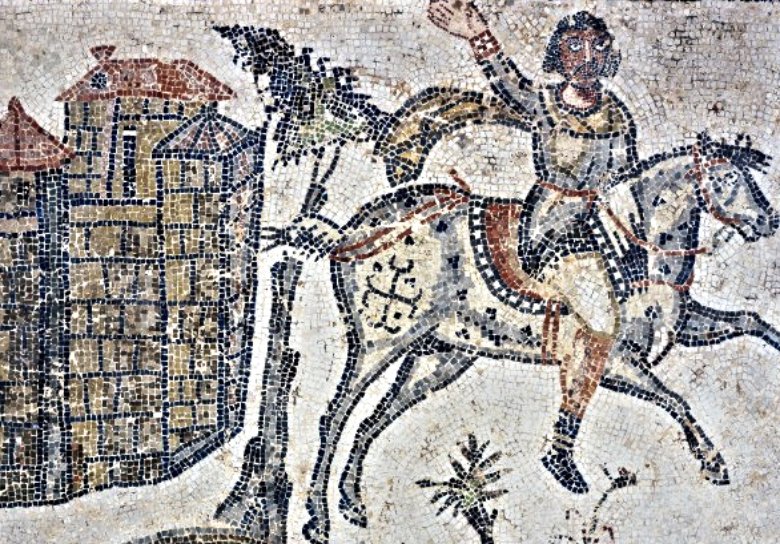 British Museum, Wikimedia Commons
British Museum, Wikimedia Commons
30. They Were On The Same Wavelength
Smoldering with resentment, and with both their reputations in tatters, Justinian and Belisarius agreed that the time had come to show the Vandal hordes who’s boss. With Justinian’s new vote of confidence, Belisarius began organizing his expedition. But he would get assistance from an unexpected source.
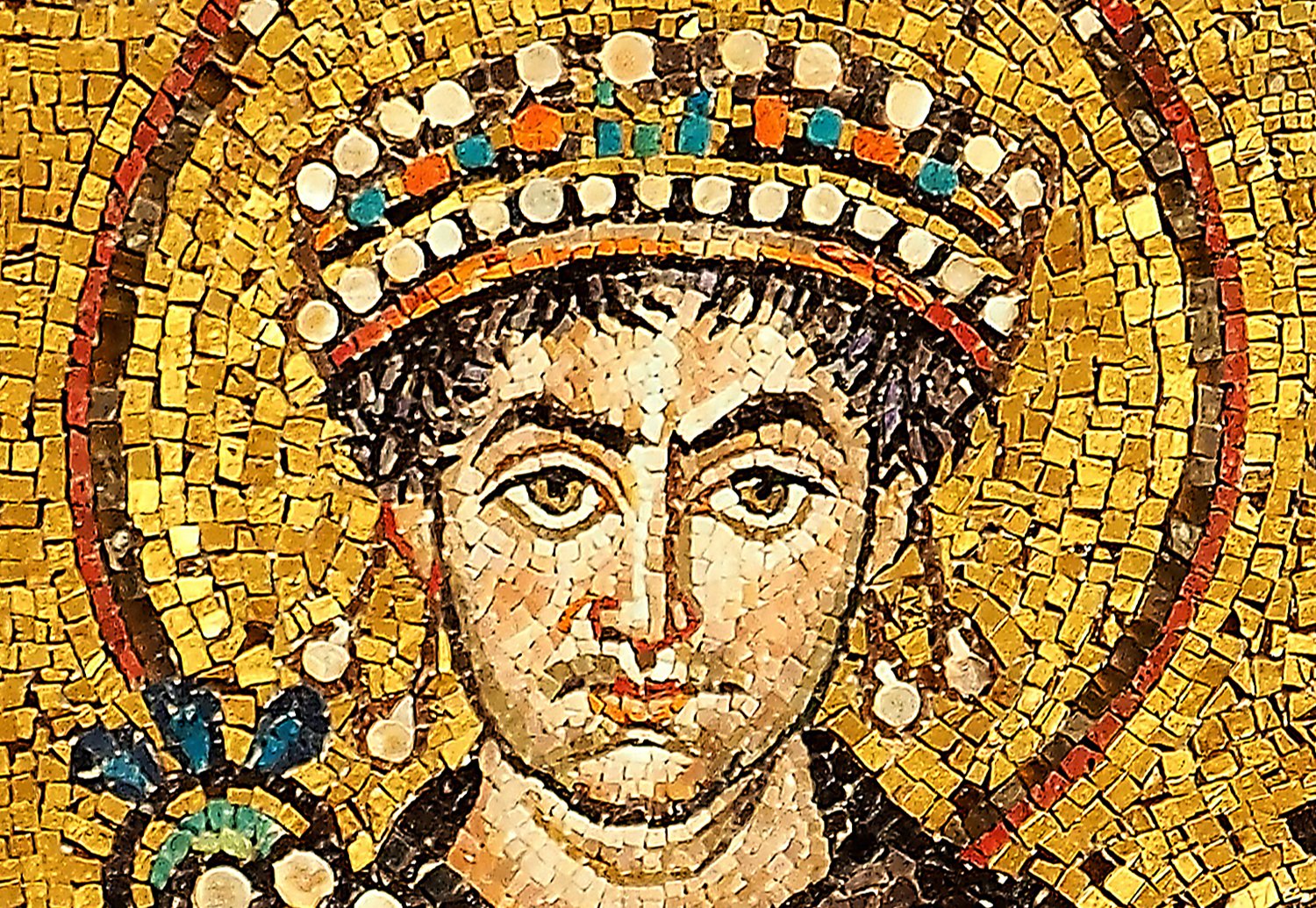 Petar Milošević, CC BY-SA 4.0, Wikimedia Commons
Petar Milošević, CC BY-SA 4.0, Wikimedia Commons
31. He Had Company On The Voyage
All this time Belisarius’s wife Antonina had been keeping tabs on events. She was aware that her husband’s effort in Persia had been sunk by internal squabbling. Through her long association with Empress Theodora, she was uniquely qualified to shepherd her husband through the turbulent waters of political intrigue.
Things were going to be different from now on—she was coming to North Africa with Belisarius.
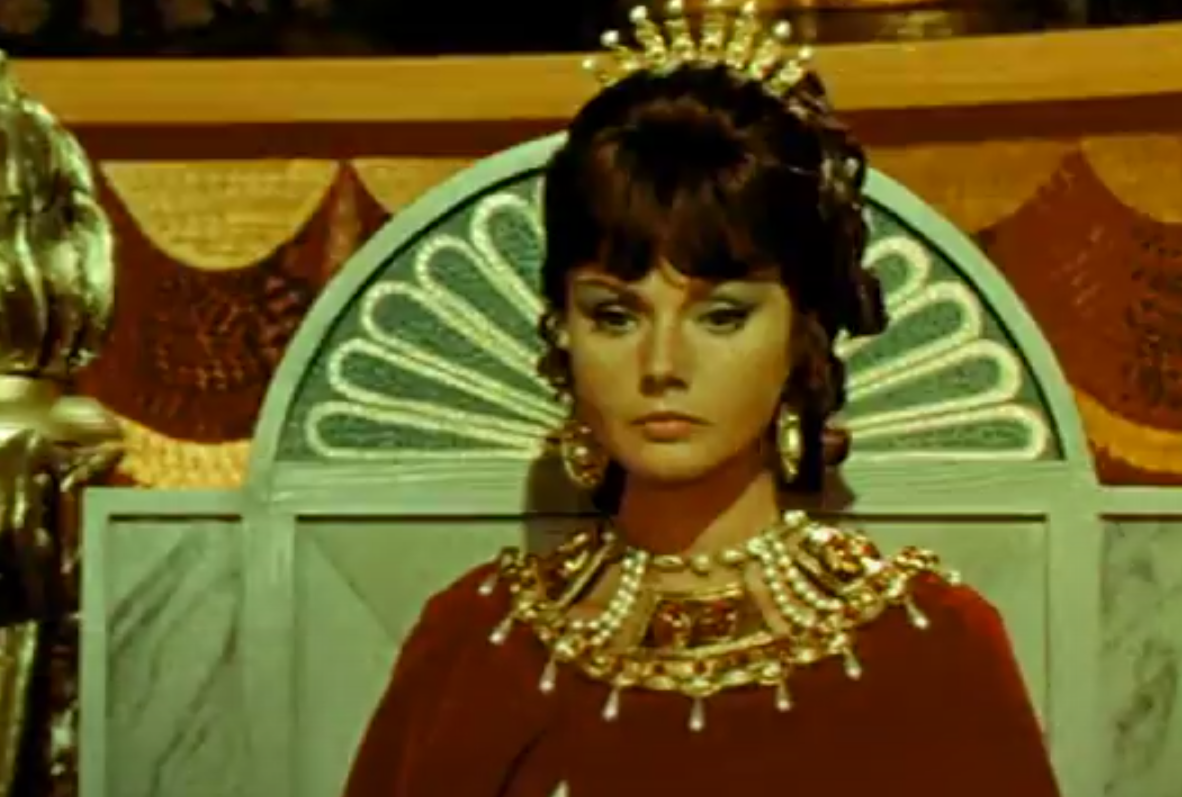 CCC Filmkunst, The Last Roman (1968)
CCC Filmkunst, The Last Roman (1968)
32. He Maintained Order
With around 20 thousand men, and a fleet of several hundred ships, the expedition set sail. Since the men came from every different part of the empire, outbreaks of violence weren’t uncommon. After a fatal altercation on one of the ships, Belisarius ordered the execution of two men. With the unruly crews threatening mutiny, Belisarius did the most Roman thing ever.
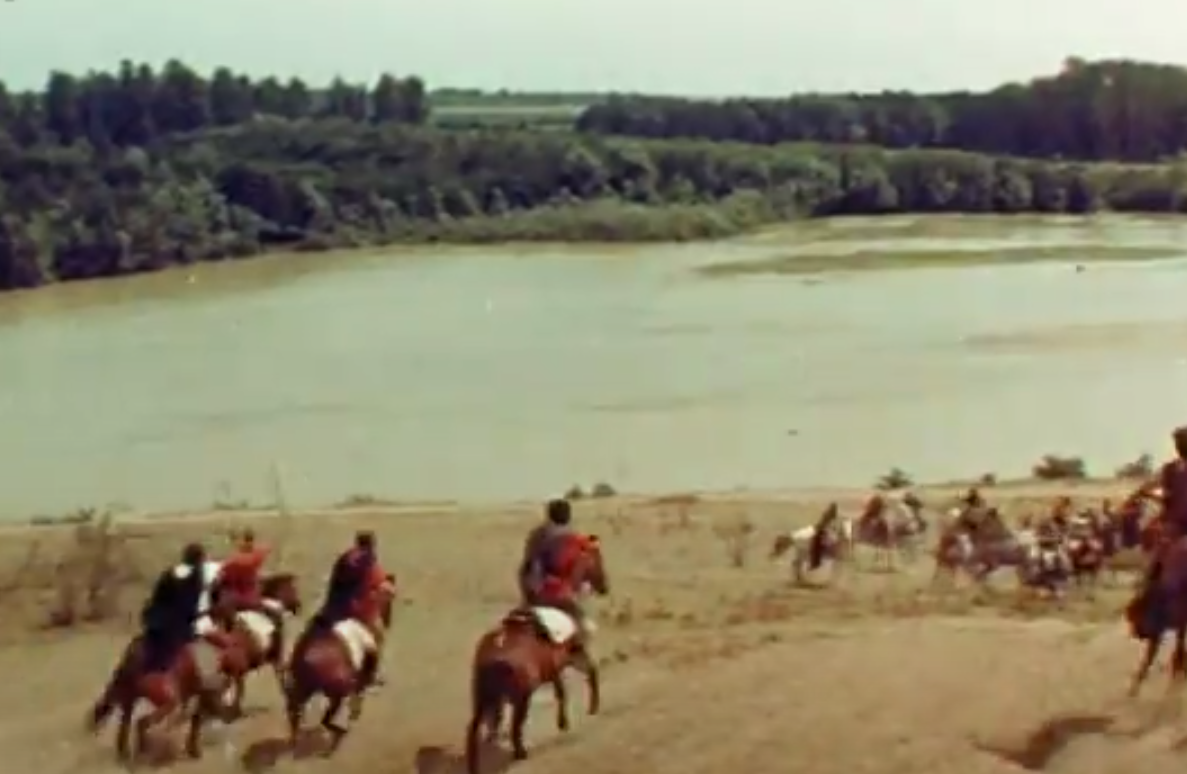 CCC Filmkunst, The Last Roman (1968)
CCC Filmkunst, The Last Roman (1968)
33. He Showed His Roman Side
Belisarius now faced an even more dangerous situation than the chaos at the Hippodrome. With the tension on board the ships simmering, Belisarius did what so many Roman leaders had done in the past: He delivered a rousing speech.
The exact words of his soaring oratory are lost to history, but the speech made an impact on the men. They turned their wrath from Belisarius to their next opponents. But a new scourge now appeared out of nowhere.
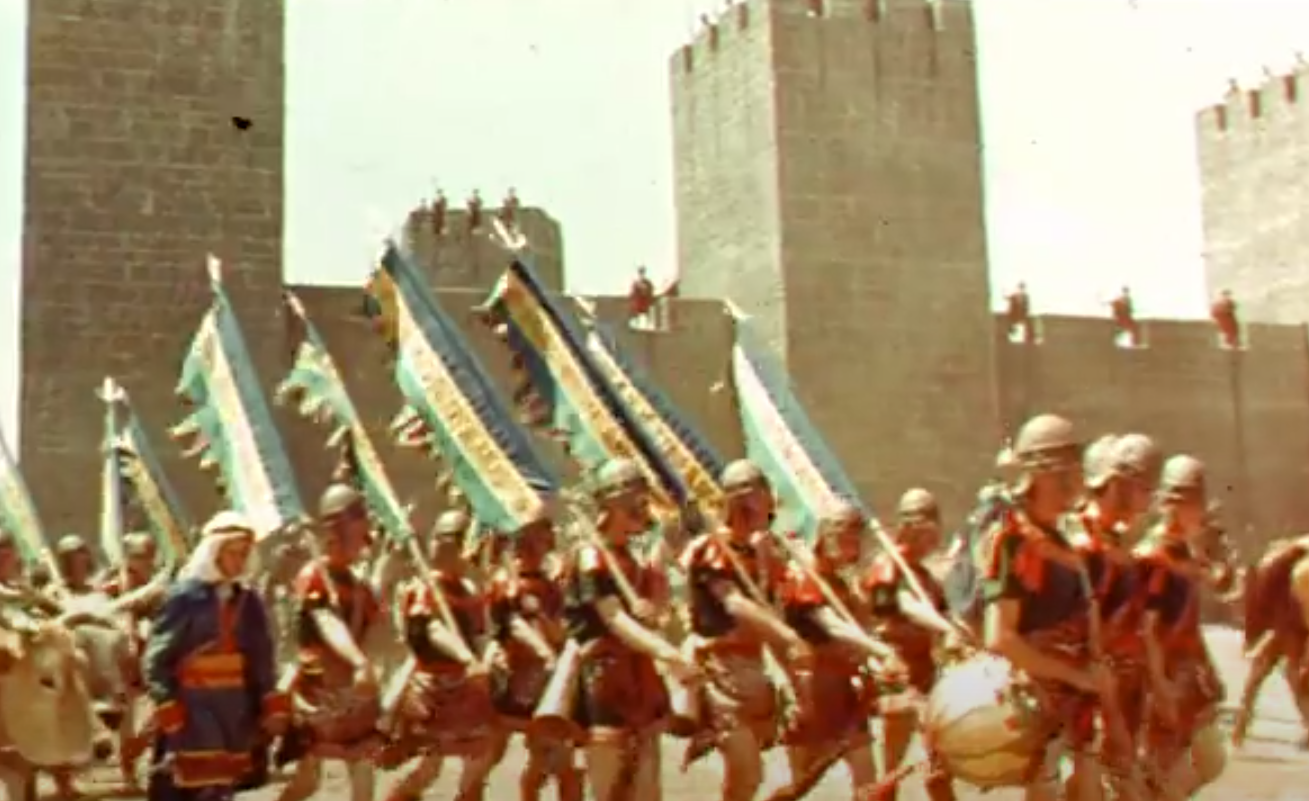 CCC Filmkunst, The Last Roman (1968)
CCC Filmkunst, The Last Roman (1968)
34. He Knew The Value Of Good Bread
By the time the fleet anchored in Sicily, 500 men had been lost from eating tainted bread. Acting quickly, Belisarius sought fresh bread and clean drinking water from the local population. But their efforts would have been useless without the helping hand of a local ally.
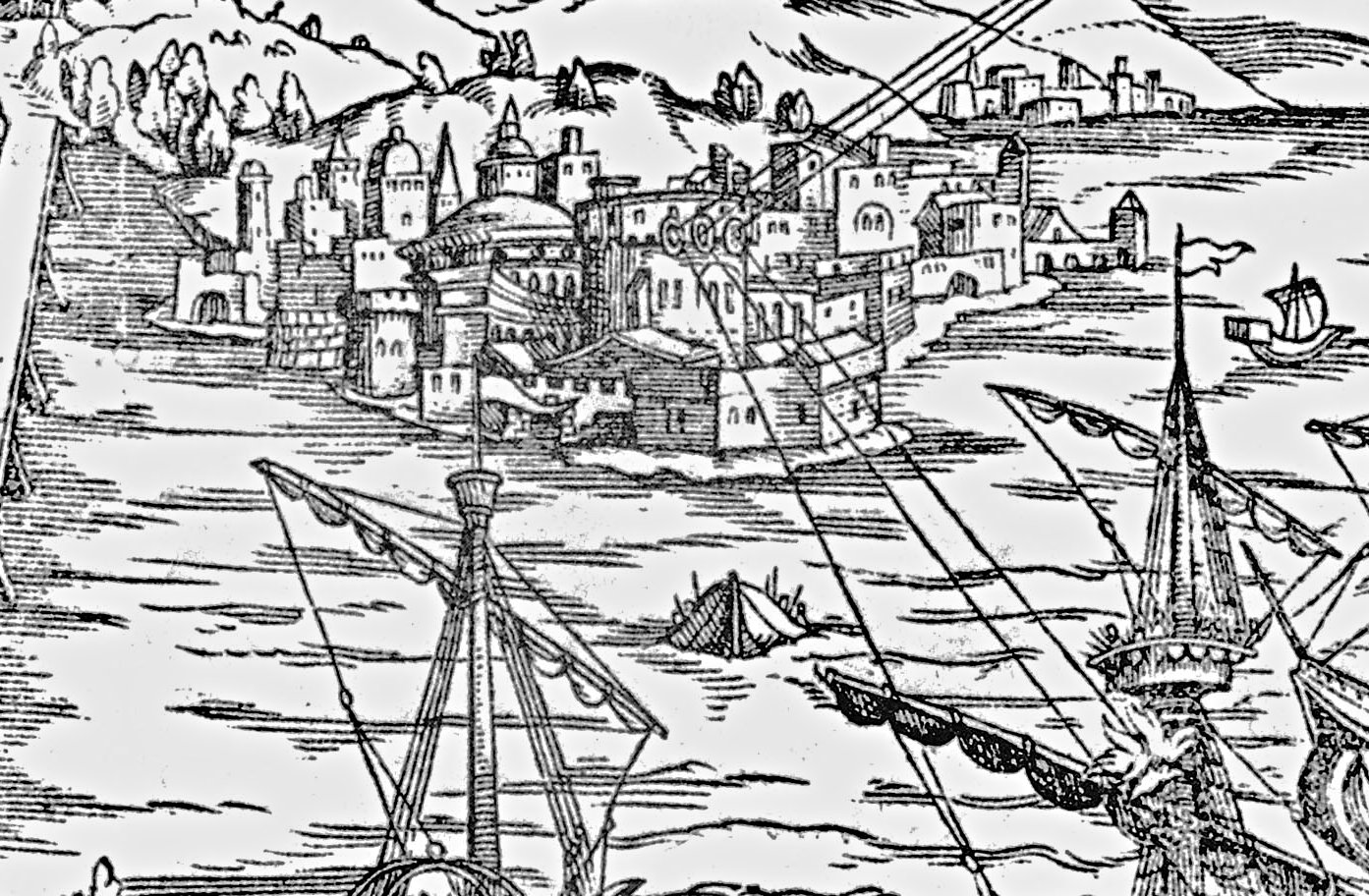 Bavarian State Library, Wikimedia Commons
Bavarian State Library, Wikimedia Commons
35. He Had The Help Of A Local Ally
Italy was at that time under the control of the Ostrogoth Queen Amalasuntha. She was just as opposed to the Vandals as Justinian was, and allowed Belisarius to find safe haven in Italian ports. With her help, Belisarius was able to make crucial stopovers on his expedition. His fleet was at Sicily when he got wind of amazing news.
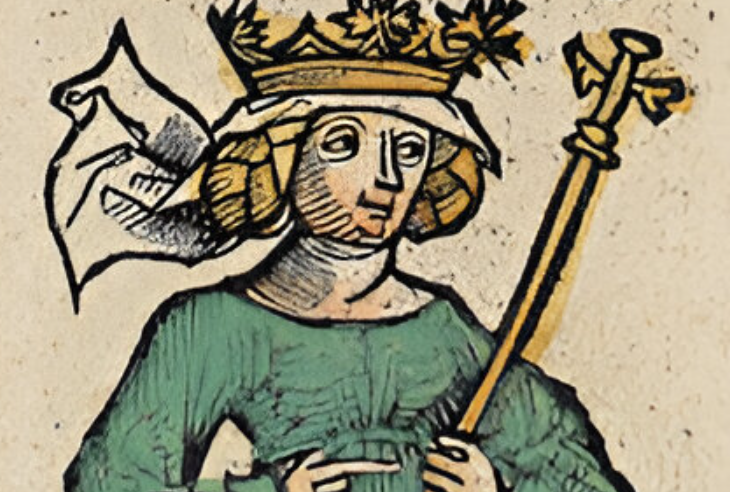 Michel Wolgemut, Wilhelm Pleydenwurff, Wikimedia Commons
Michel Wolgemut, Wilhelm Pleydenwurff, Wikimedia Commons
36. His Path Was Wide Open
Belisarius’ associate Procopius got word that the Vandal fleet was tied up around Sardinia. It was obvious the Vandals had no idea that the Byzantine fleet was on its way. Having overcome so many challenges just to get this far and with morale at a low ebb, the news re-energized Belisarius and his army. They immediately set sail for North Africa.
37. He Chose A Far-Away Place
While many of his officers recommended taking the undefended Vandal capital in a surprise attack, Belisarius decided to come ashore around 160 miles to the east of the city of Carthage. He knew his men’s energy and readiness had been sapped by the long voyage, and they would need time to get organized before crossing swords with the enemy. He also had a critical decision to make.
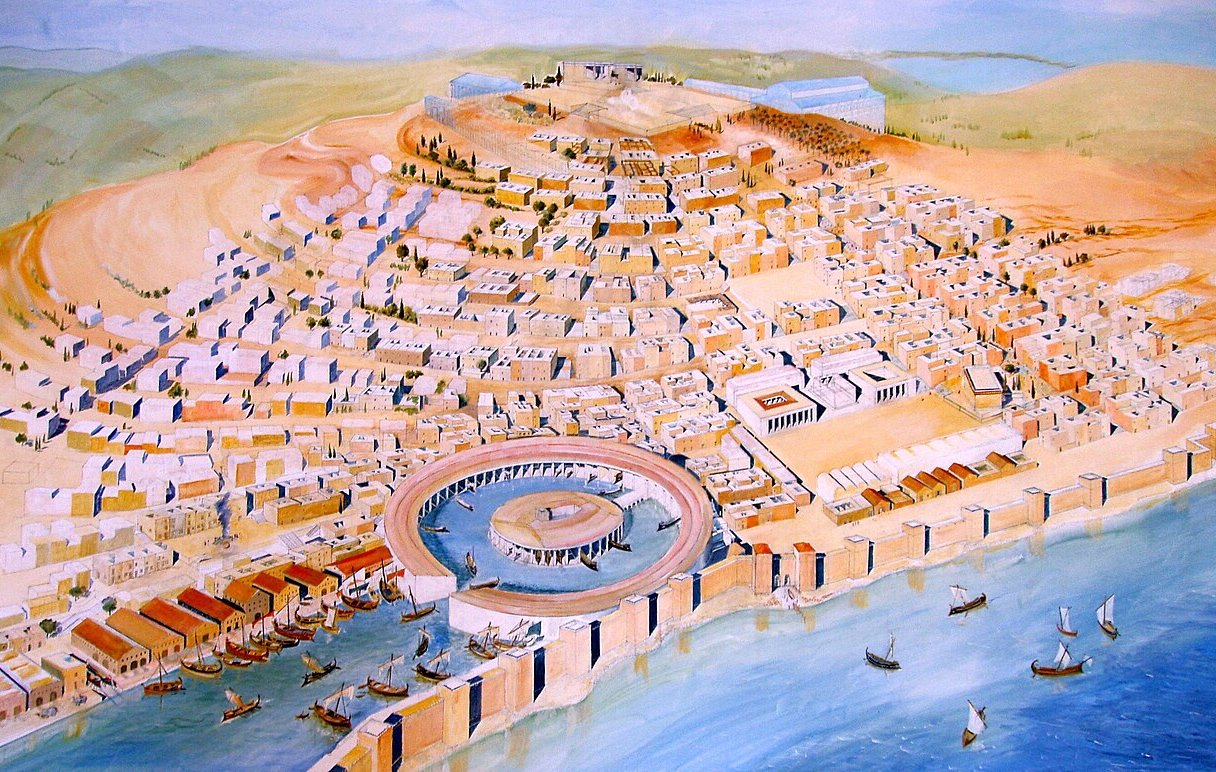 damian entwistle, CC BY-SA 2.0, Wikimedia Commons
damian entwistle, CC BY-SA 2.0, Wikimedia Commons
38. He Weighed His Options
Over a thousand miles from Constantinople, Belisarius was as free from political interference as he could possibly be. Knowing that Justinian hadn’t explicitly given the direct order to conquer the Vandal kingdom, he realized the decision was his alone. Cut off from support from home, he knew this was his only chance. He would conquer the Vandal kingdom or go under.
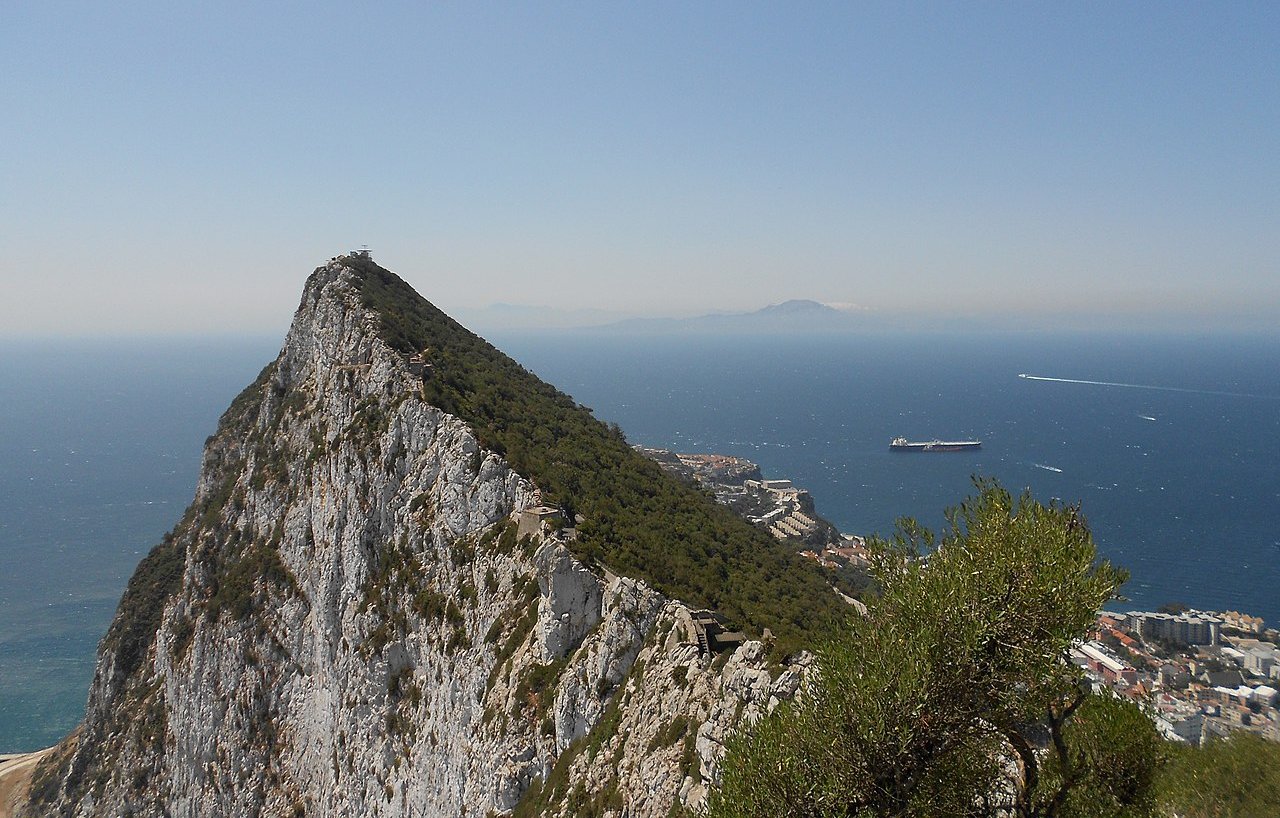 Diagram Lajard, CC0, Wikimedia Commons
Diagram Lajard, CC0, Wikimedia Commons
39. He Enforced Ferocious Discipline
As his men fanned out over the countryside, they began foraging for food from local farms. Learning that some of his men had stolen fruit from a nearby orchard, Belisarius had the men executed. The sight of such terrifying discipline again caused unrest amongst the men. It dawned on Belisarius that he needed to drill some sense into them.
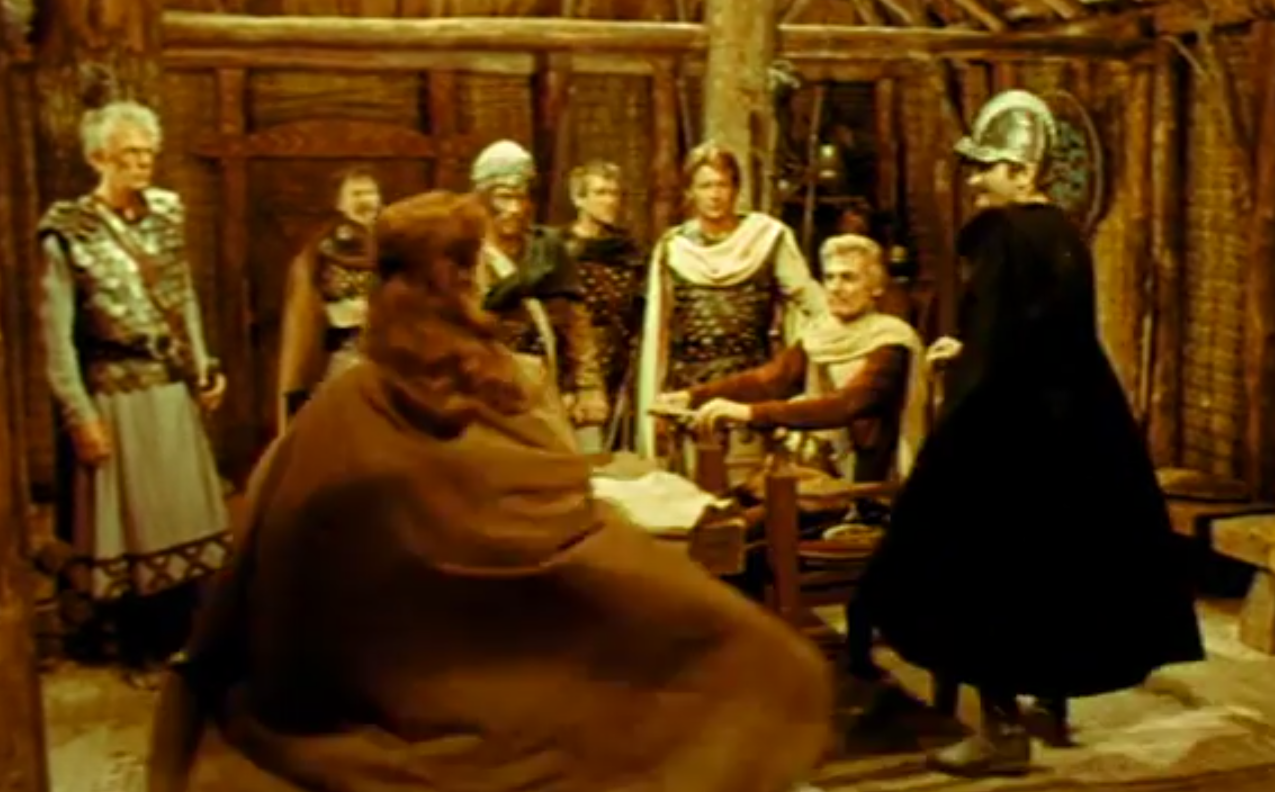 CCC Filmkunst, The Last Roman (1968)
CCC Filmkunst, The Last Roman (1968)
40. He Won Hearts And Minds
Belisarius addressed his army again, patiently explaining to them the importance of getting the local population on their side. Isolated as they were, the support of the local people would be critical. He demanded that no villages be plundered or locals harmed on the penalty of execution. Tired from the long journey and Belisarius’s speeches, the restless men were eager to get going. They wouldn’t have to wait long.
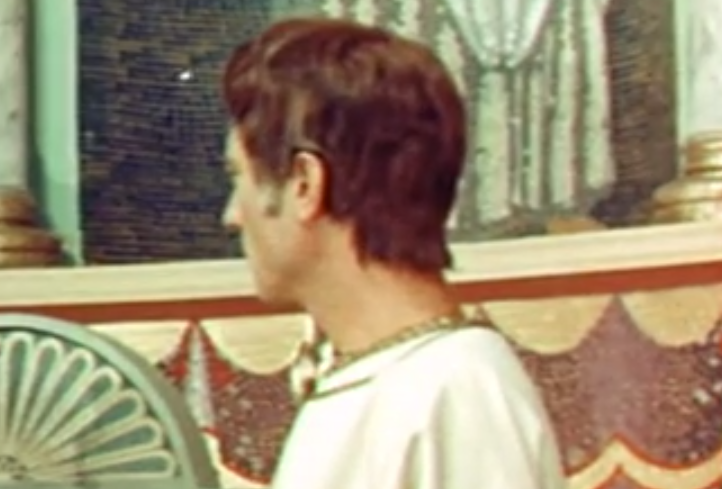 CCC Filmkunst, The Last Roman (1968)
CCC Filmkunst, The Last Roman (1968)
41. He Made A Lightning Strike
Belisarius set his men on a rapid march to the Vandal capital at Carthage. Moving up to nine miles per day, Belisarius knew they would soon have to do battle. Learning that there were Vandal forces on either side of him, he made a bold move.
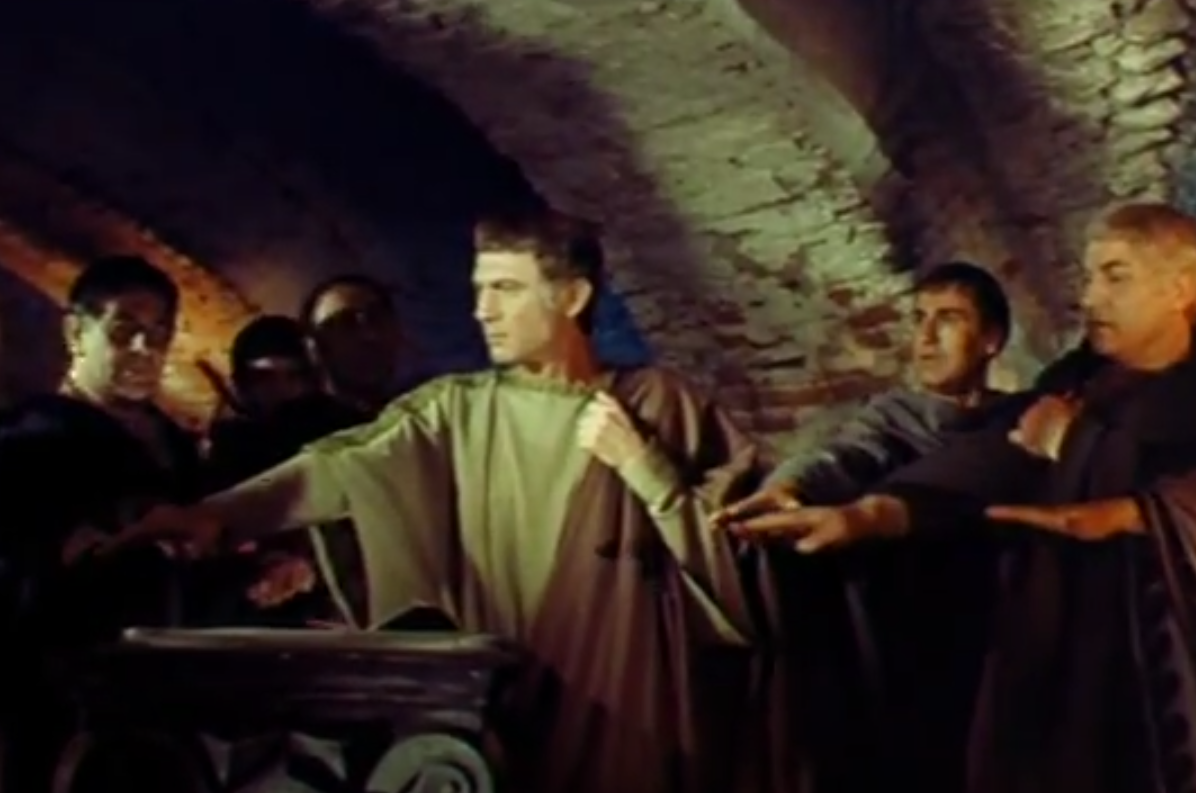 CCC Filmkunst, The Last Roman (1968)
CCC Filmkunst, The Last Roman (1968)
42. He Used His Strong Suit
As the forces converged near Ad Decimum on the outskirts of Carthage, Belisarius knew he could only control so much. Leaving his main force in place to stand against the Vandal offensive, Belisarius held himself apart with a team of cavalry. Choosing the perfect moment to strike, Belisarius and his horsemen routed the Vandals right at the critical moment. The city of Carthage was his for the taking.
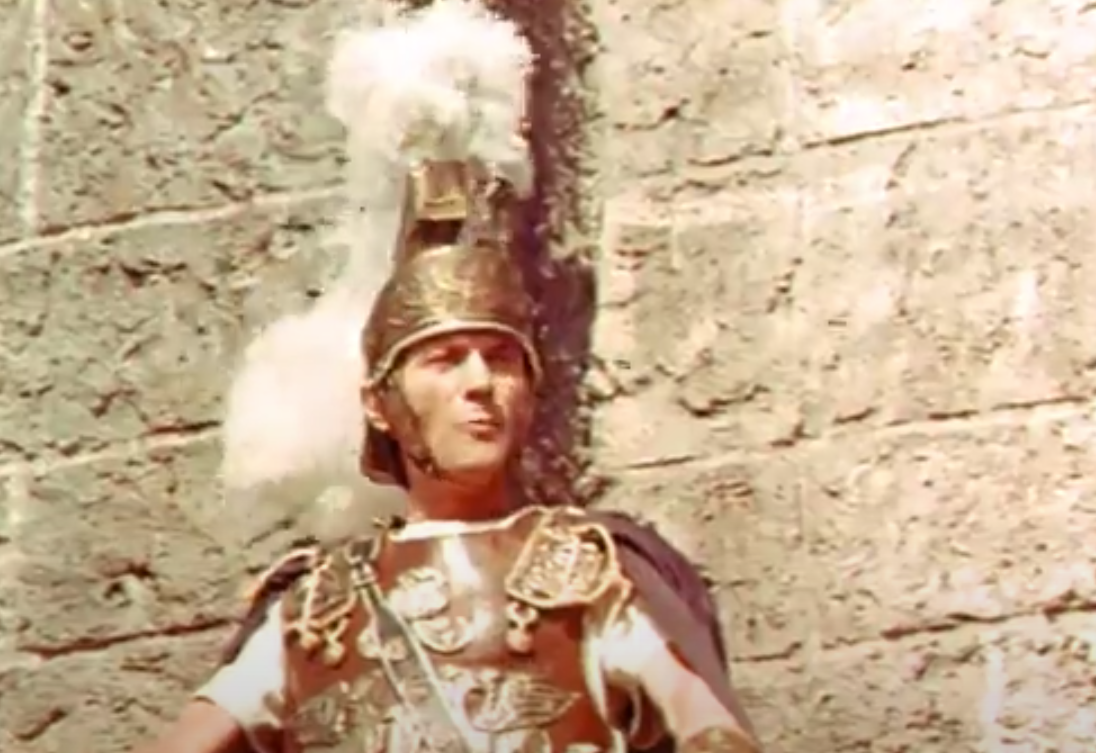 CCC Filmkunst, The Last Roman (1968)
CCC Filmkunst, The Last Roman (1968)
43. He Entered The City Triumphant
Belisarius’s policy of benevolence had paid off as he and his men took Carthage mostly intact. The expedition had succeeded beyond anyone’s wildest expectations. But it wasn’t long before his success aroused the envy of subordinates.
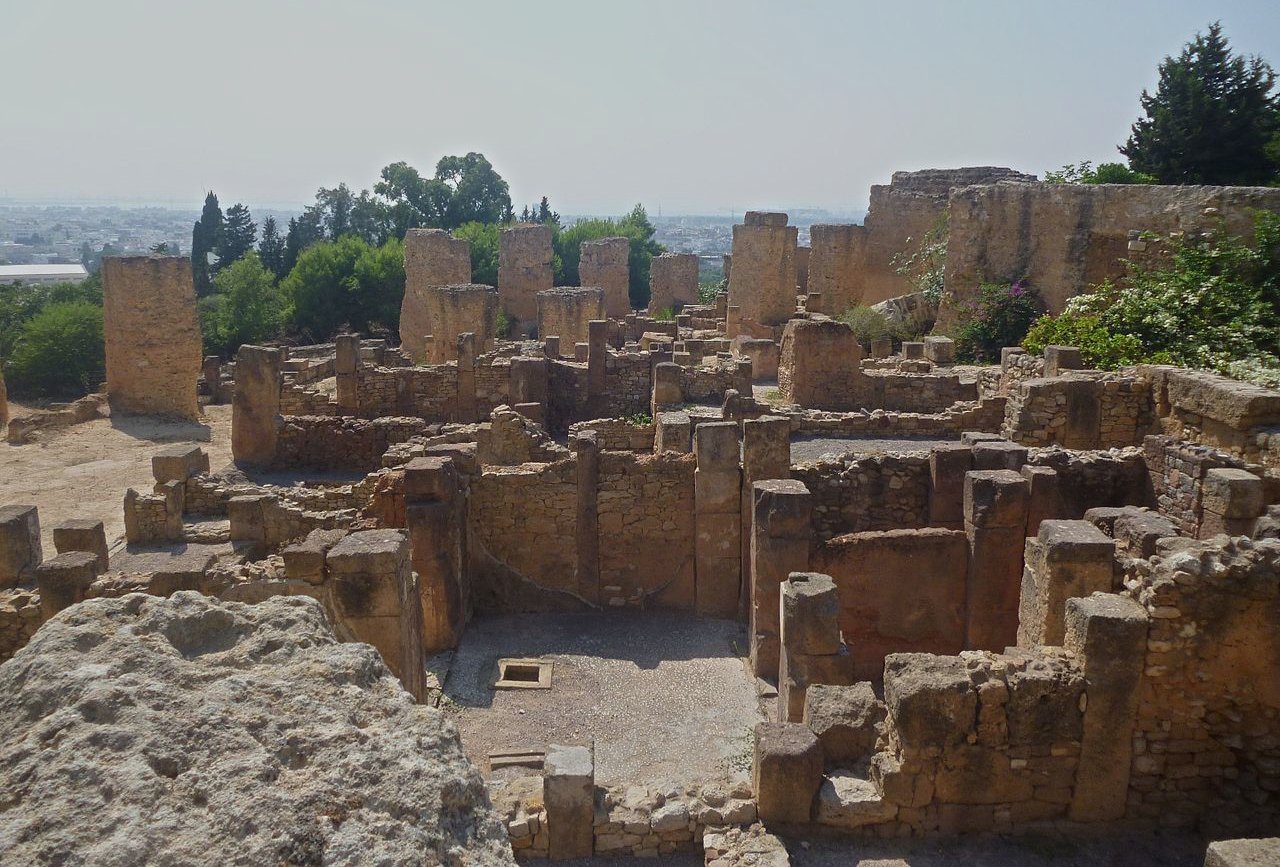 Christian Manhart, CC BY-SA 3.0, Wikimedia Commons
Christian Manhart, CC BY-SA 3.0, Wikimedia Commons
44. He Returned In Triumph
Belisarius’s jealous underlings had informed Justinian that he wanted to take over and rule the former Vandal kingdom for himself. Justinian offered Belisarius the option to return to Constantinople and receive a triumph, or remain in Carthage as governor. Knowing his own lack of political savvy, and likely with the advice of Antonina, the general decided to return to the capital. But he wouldn’t have much time to bask in his newfound success.
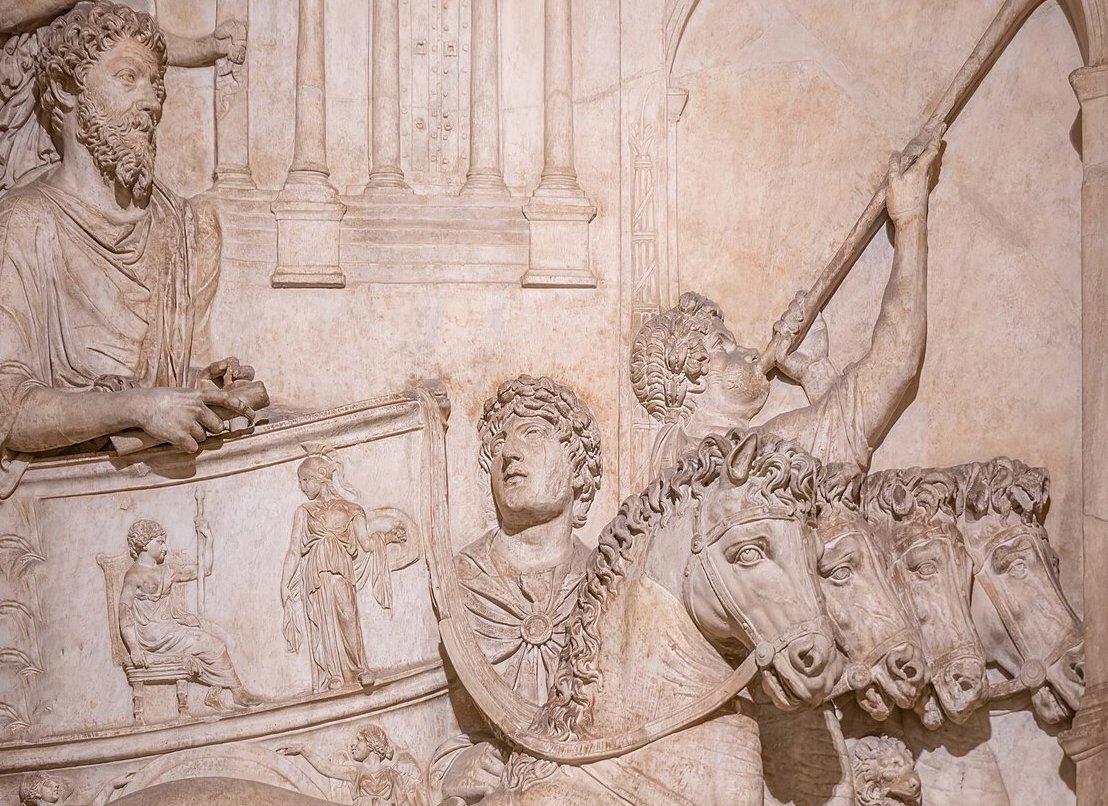 Wilfredo Rafael Rodriguez Hernandez, CC0, Wikimedia Commons
Wilfredo Rafael Rodriguez Hernandez, CC0, Wikimedia Commons
45. He Was In High Demand
The toppling of Queen Amalasuntha, a key ally in Italy, prompted Justinian to order Belisarius to recapture the Italian peninsula from the Ostrogoths. With only 8,000 men in his command, Belisarius set forth. As he came ashore in Sicily, the odds against him seemed astronomical.
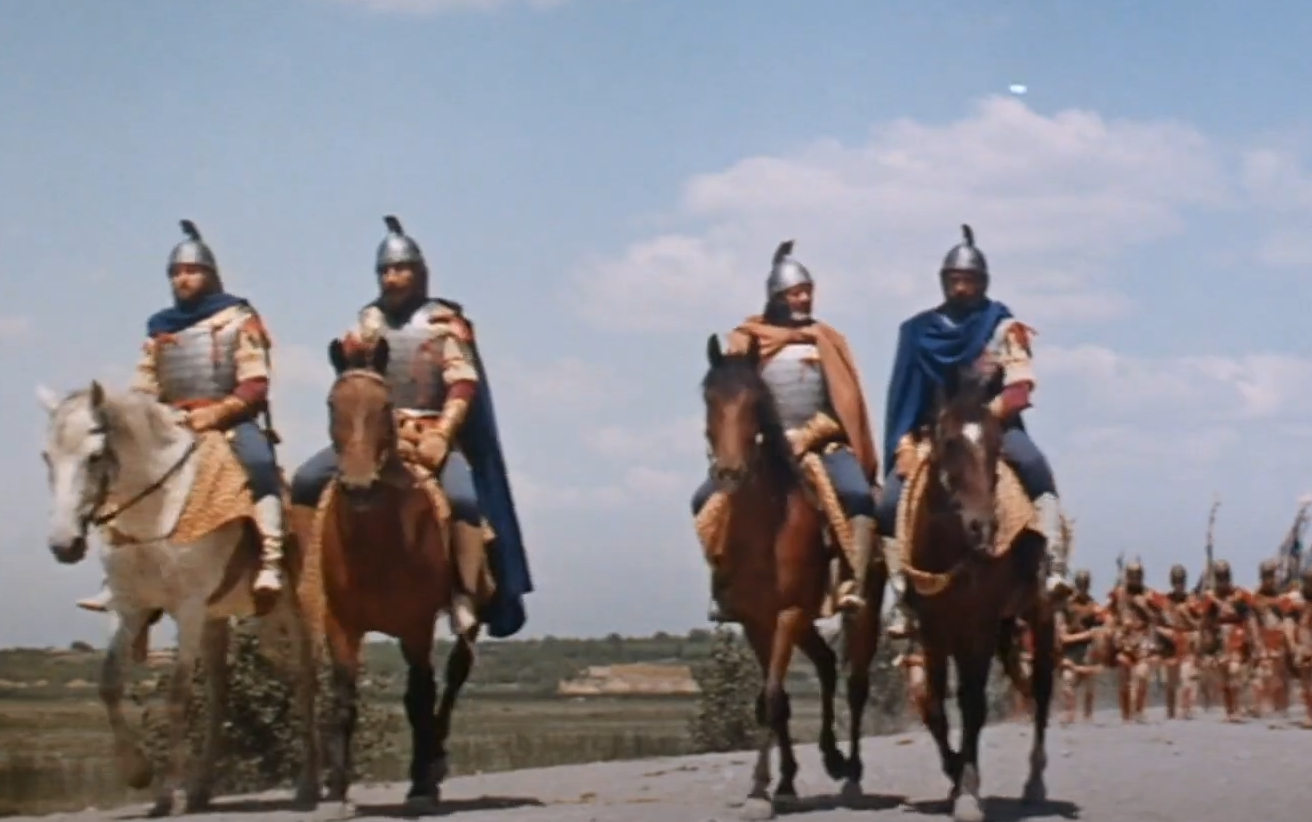 CCC Filmkunst, The Last Roman (1968)
CCC Filmkunst, The Last Roman (1968)
46. He Was Back To His Old Ways
With his reputation as a benevolent conqueror, the people of Sicily welcomed Belisarius and his men as they captured the island with little resistance. Already the Ostrogoth king was sending overtures of surrender. It looked like everything was falling into place. Belisarius prepared to cross over into mainland Italy.
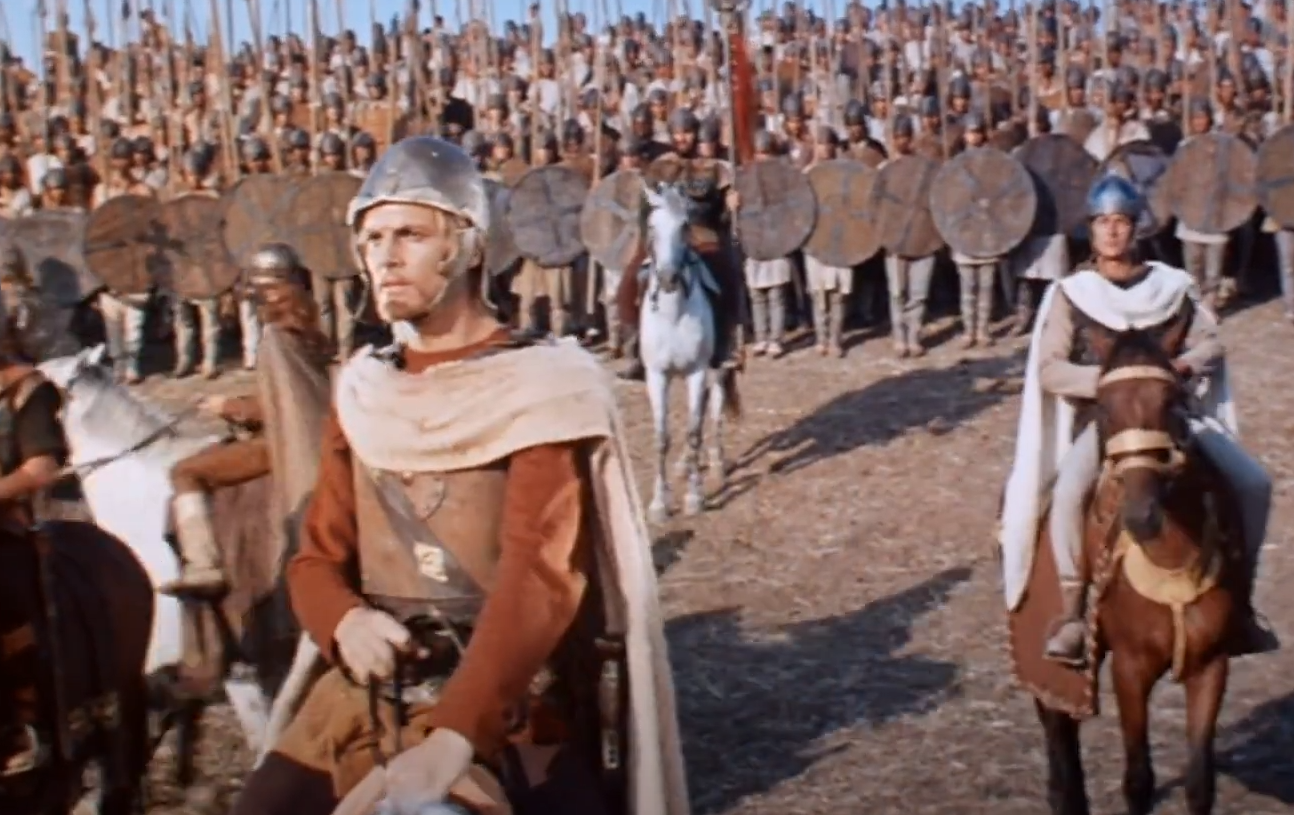 CCC Filmkunst, The Last Roman (1968)
CCC Filmkunst, The Last Roman (1968)
47. He Found A Way In
Belisarius and his men sliced across Italy and laid siege to the city of Naples. After three weeks of futility outside the city walls, the men discovered an aqueduct leading into the city. That was all the advantage they needed as the city quickly fell thereafter. But they were out of their minds if they thought their luck would continue.
48. He Was Bottled Up
After Belisarius took Rome without a fight, the furious Ostrogoths deposed their own ineffectual king, whose replacement immediately laid siege to Rome. Cooped up in the Eternal City amid the increasingly discontented townspeople, the miserable siege dragged on. It was then that Belisarius had a serious lapse in judgment.
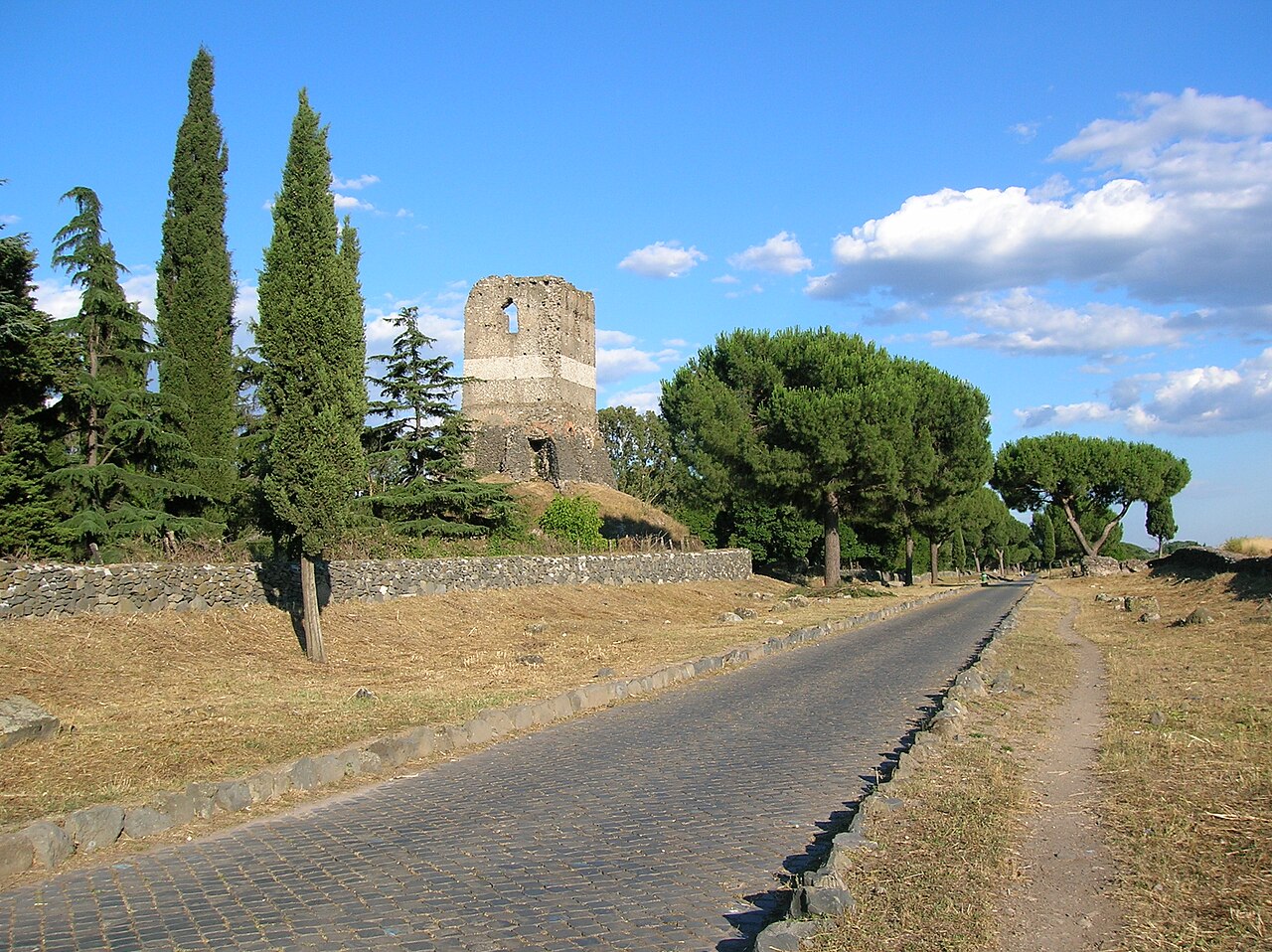 Nicolò Musmeci, Wikimedia Commons
Nicolò Musmeci, Wikimedia Commons
49. He Was Just Following Orders
Belisarius suddenly received orders from Empress Theodora to depose the pope, and replace him with a handpicked successor from Constantinople. Antonina pitched in by accusing the pope of spying for the Goths. Belisarius exiled the pope to a small island.
Learning that Justinian hadn’t known of Theodora’s order, Belisarius realized he’d been played by the two women in another of their constant plots. Incensed, he focused on getting his men out of Rome.
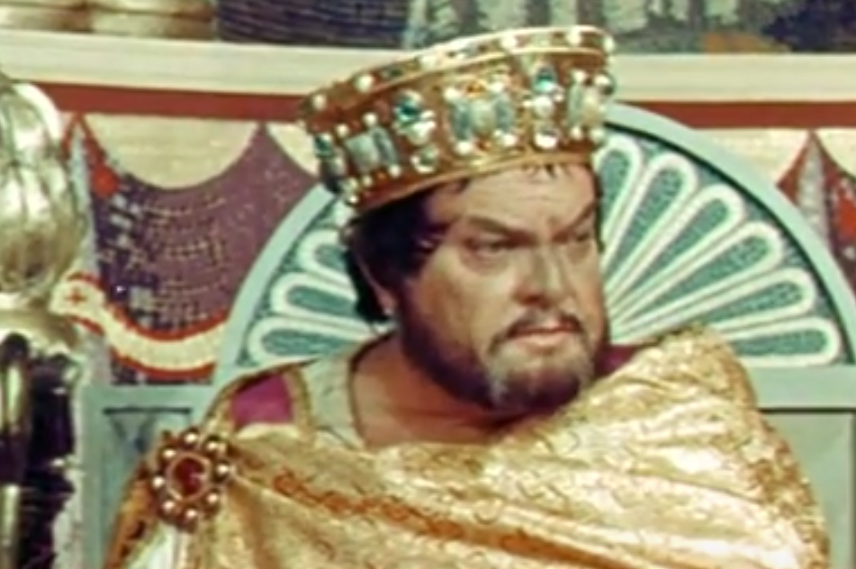 CCC Filmkunst, The Last Roman (1968)
CCC Filmkunst, The Last Roman (1968)
50. He Outlasted The Opposition
Still sore about the shabby business with the pope, Belisarius tried to drive the enemy from the gates of Rome. After a full year of stalemate, outbreaks of plague, and food shortages, reinforcements arrived to help him drive the dejected Ostrogoths away from the city. As Belisarius resumed his onslaught, Antonina got back on his good side.
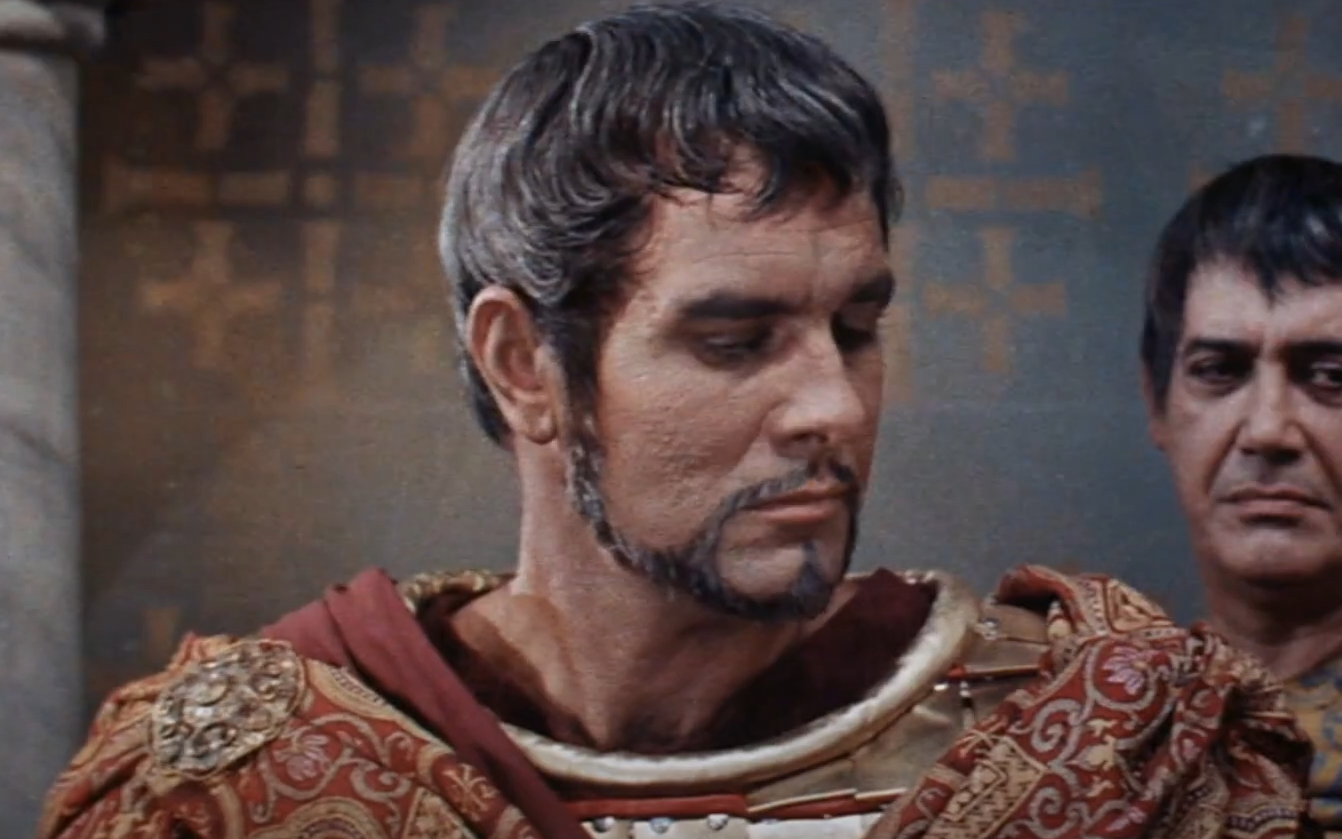 CCC Filmkunst, The Last Roman (1968)
CCC Filmkunst, The Last Roman (1968)
51. He Relied On Her Help
Belisarius sent Antonina south to Naples to organize supply shipments of grain as he moved further into Italy. With her boundless energy channelled in a positive direction for once, Antonina made the decision to move supplies up the coast by boat, eluding the Gothic forces that blocked the roads. Her contribution turned out to be crucial.
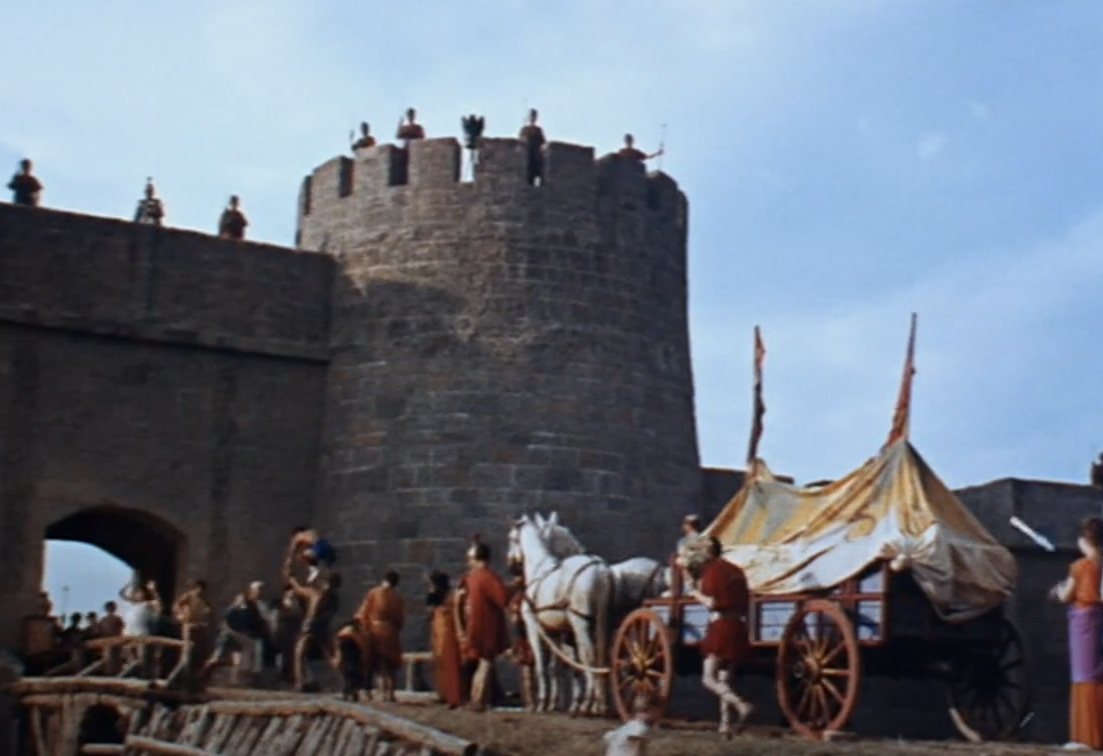 CCC Filmkunst, The Last Roman (1968)
CCC Filmkunst, The Last Roman (1968)
52. He Brought Down Another Capital
With the Italian countryside convulsed by food shortages and constant movement of armies, Belisarius brought his men to the Gothic capital at Ravenna. Seizing a shipment of grain destined for the beleaguered capital, Belisarius soon forced an entry into the city. Proclaiming Ravenna captured in the name of Justinian, Belisarius and Antonina headed home.
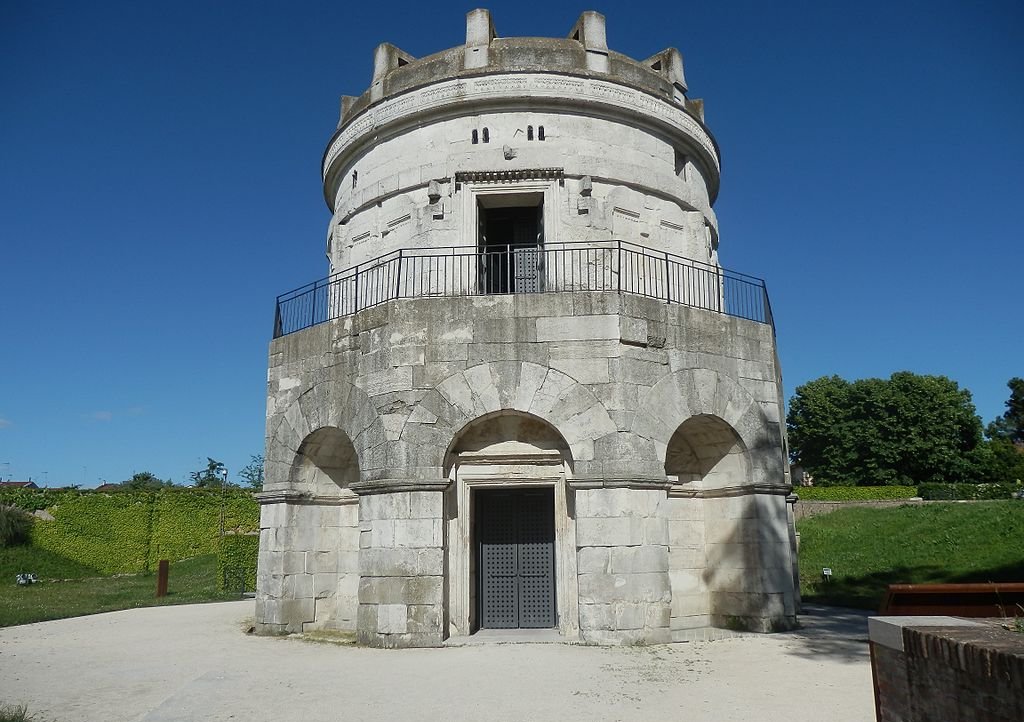 Spartakos, CC BY-SA 3.0, Wikimedia Commons
Spartakos, CC BY-SA 3.0, Wikimedia Commons
53. She Wasted No Time
With his popularity at an all-time high, Belisarius aroused the envy of many in Constantinople. Antonina waded into the controversy in full force. She and Theodora got busy spreading vicious rumors about one of the emperor’s best advisors, John of Cappadocia. The smear campaign led to John’s exile.
Seeing another reputation ruined, Belisarius couldn’t wait to escape the den of vipers that was Byzantine political life.
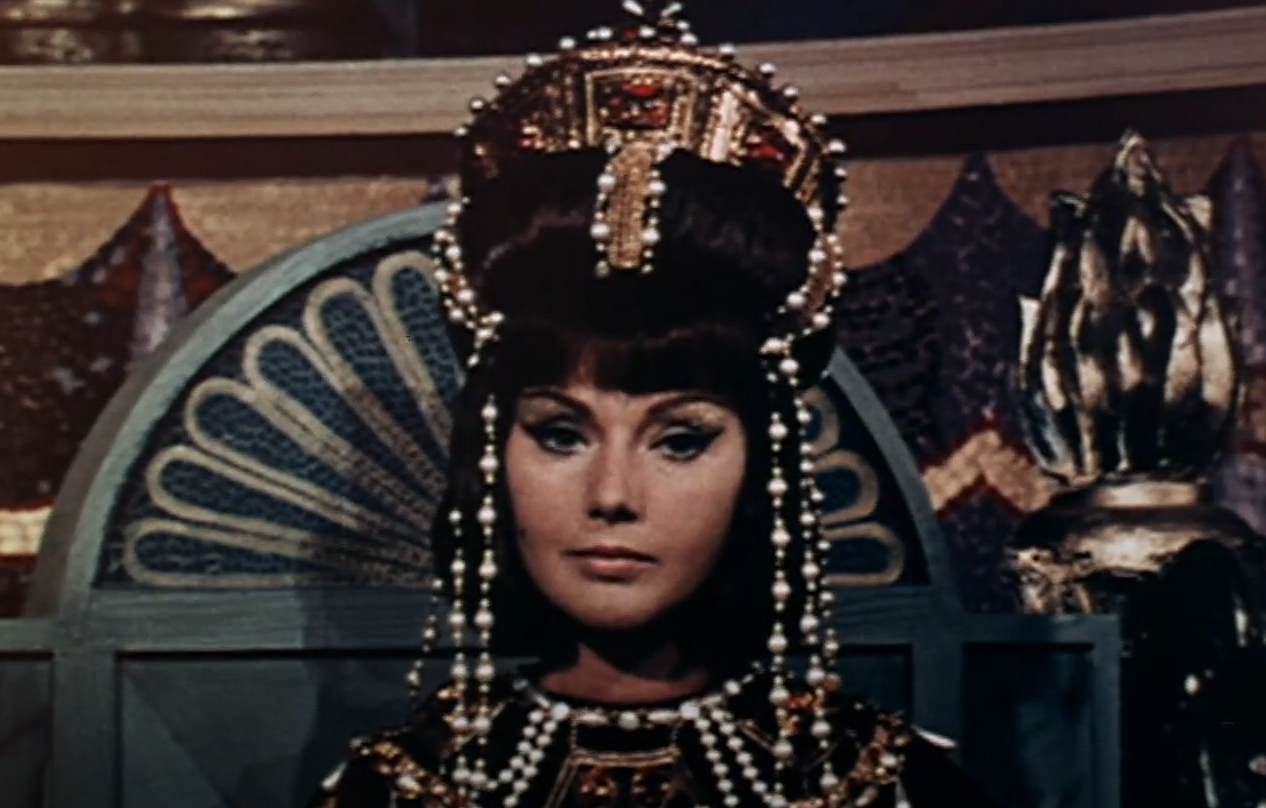 CCC Filmkunst, The Last Roman (1968)
CCC Filmkunst, The Last Roman (1968)
54. He Wanted Another Crack At Them
Perhaps preferring to keep the empire’s most popular general occupied on the far-off frontiers, in 541, Justinian dispatched Belisarius to Persia once again. Belisarius hadn’t forgotten the setbacks he’d suffered a decade earlier at the hands of the tenacious and resourceful Persians. He was itching to have another crack at them.
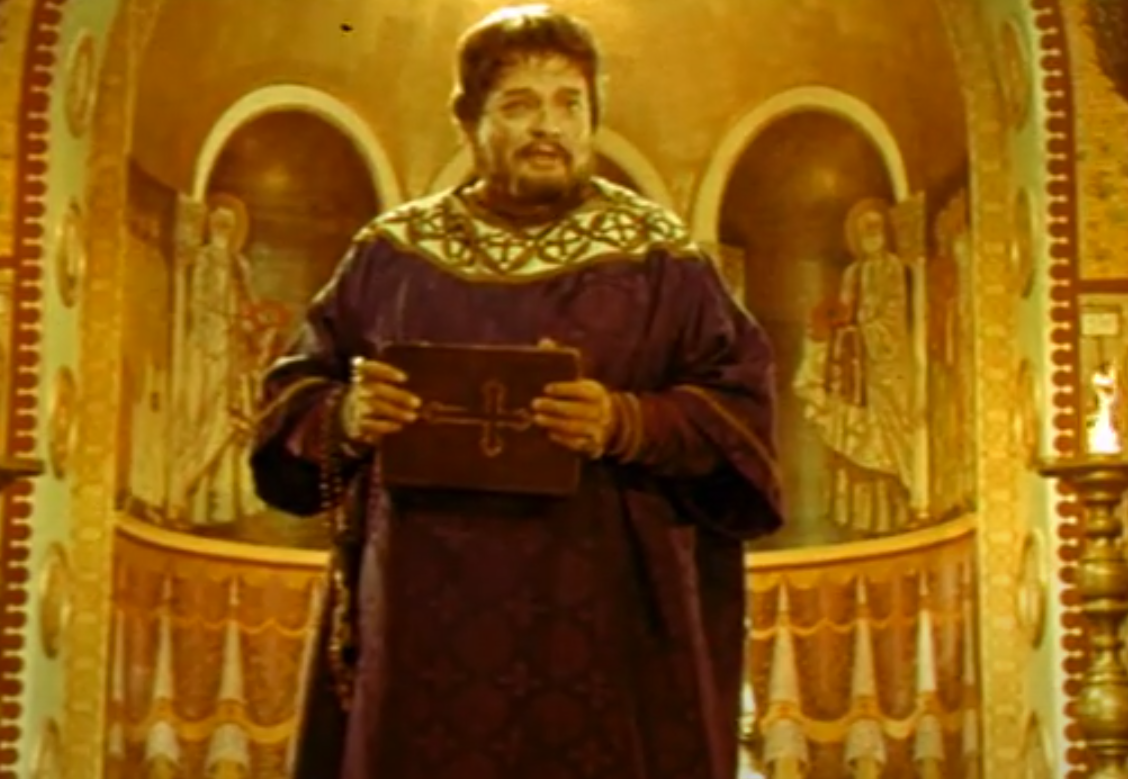 CCC Filmkunst, The Last Roman (1968)
CCC Filmkunst, The Last Roman (1968)
55. She Wasn’t At His Side
For this foray into Persia, Belisarius would be without Antonina, who decided to stay behind in the capital. Though the general would be free of her distractions, he would also miss Antonina’s astute political sensibilities. It wouldn’t be long before her absence would prove to be disastrous.
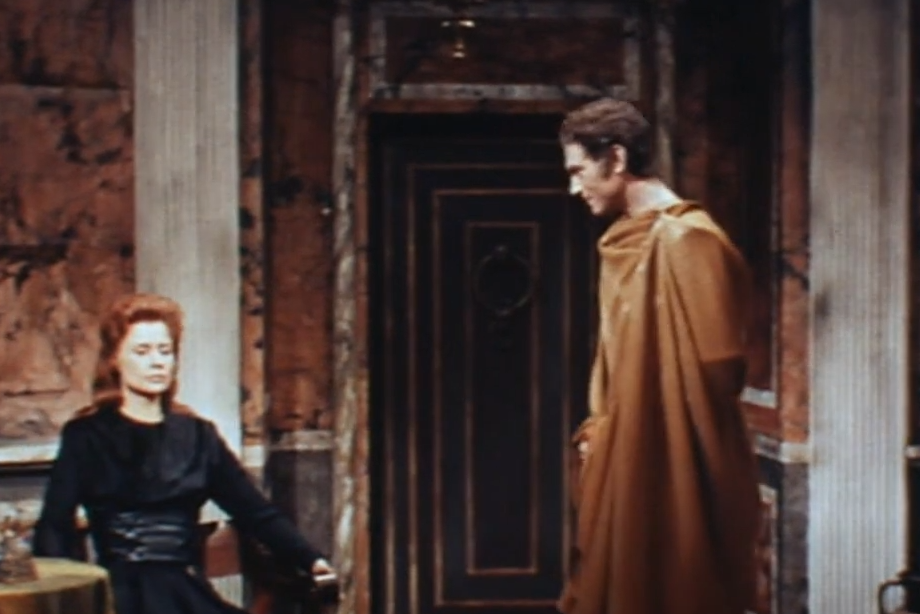 CCC Filmkunst, The Last Roman (1968)
CCC Filmkunst, The Last Roman (1968)
56. He Had A Tough Act To Follow
The struggle in Persia proved to be as difficult as Belisarius remembered from his earlier stint there. Though meeting with some successes, there were also setbacks. The situation wasn’t made any easier by the arrival in the empire of a terrifying new nemesis.
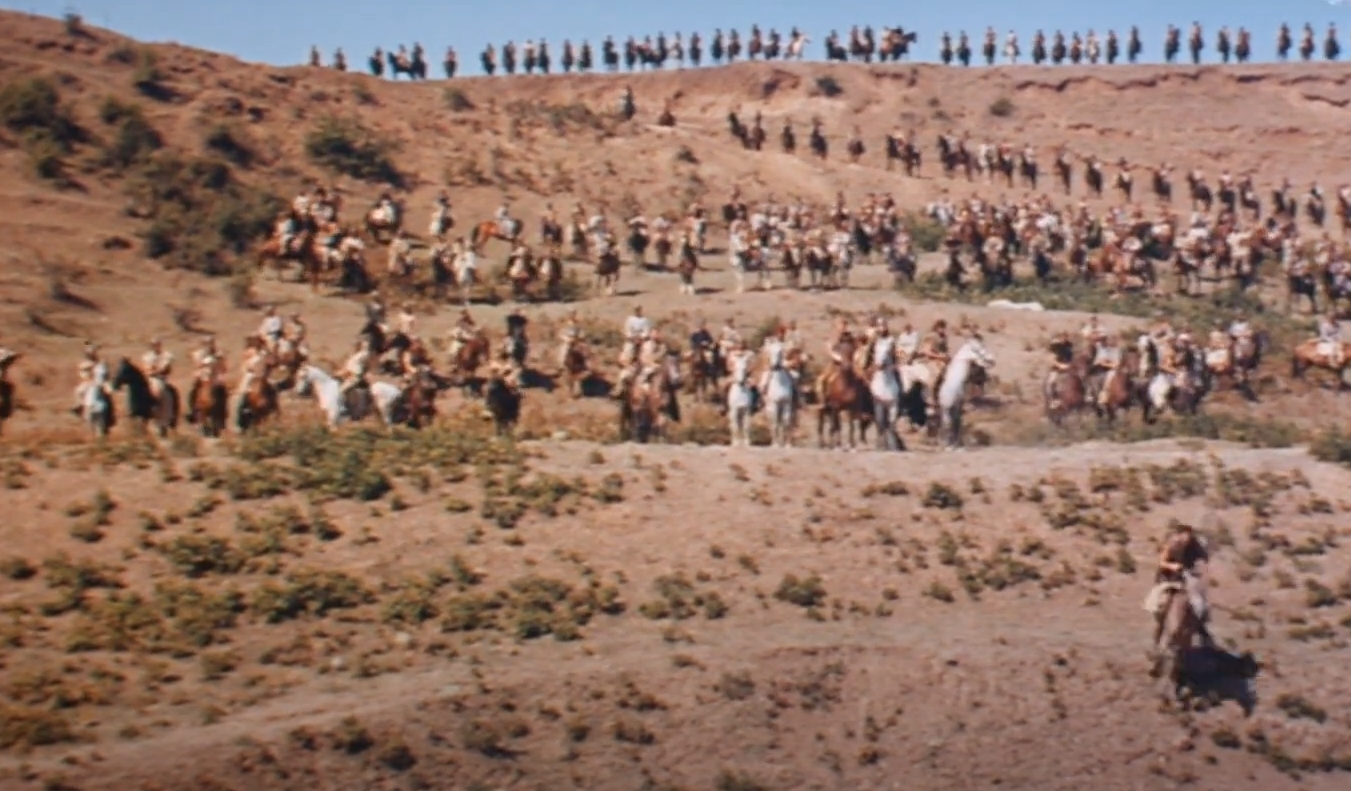 CCC Filmkunst, The Last Roman (1968)
CCC Filmkunst, The Last Roman (1968)
57. He Faced A New Nemesis
The outbreak of what is now known as bubonic plague in 541 shook the empire to its foundation. The mounting toll of victims was accompanied by a wave of dread across Asia and Europe. But amid the uncertainty, Belisarius saw an opportunity to turn the plague to his advantage.
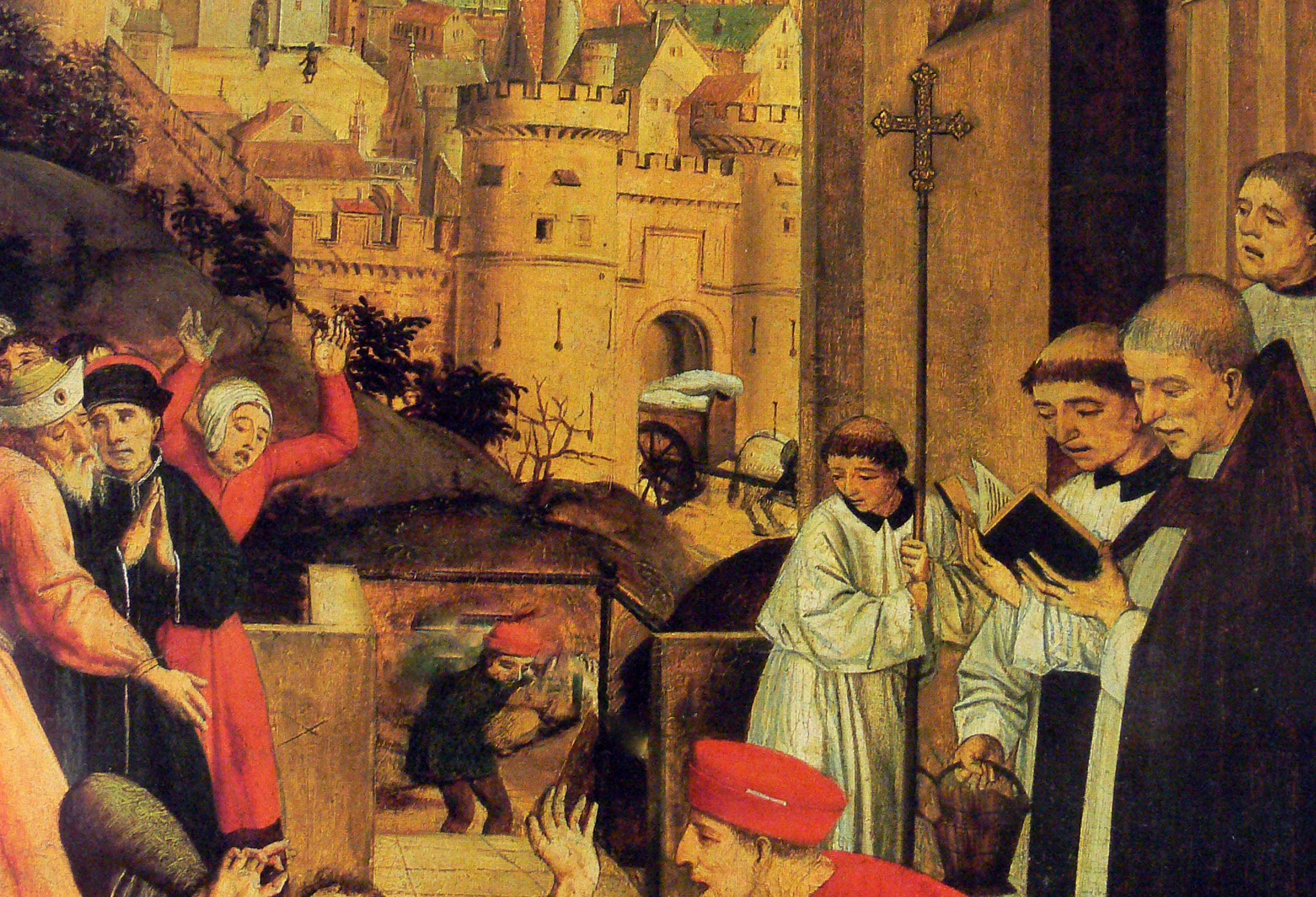 Josse Lieferinxe, Wikimedia Commons
Josse Lieferinxe, Wikimedia Commons
58. He Used Deception
With the Persians threatening to invade Byzantine territory in Syria, Belisarius decided he didn’t want to risk open battle. He took the best of his men to a meeting with the Persian ambassador. With the Byzantines armed only with hunting equipment, the Persians thought this was a much smaller unit of a massive force Belisarius held in reserve. But this was only half of the deception Belisarius had planned.
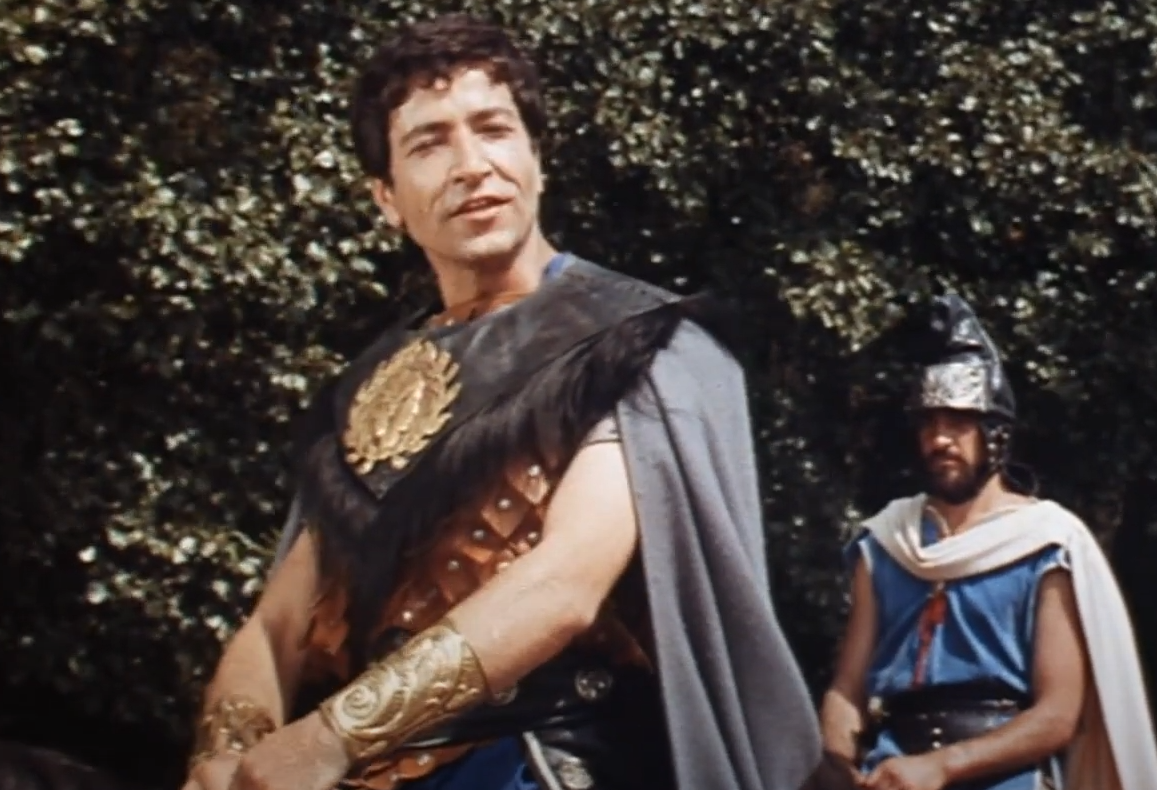 CCC Filmkunst, The Last Roman (1968)
CCC Filmkunst, The Last Roman (1968)
59. He Used The Plague To His Advantage
Belisarius and his men also feigned indifference to the plague, terrifying the Persians. These ruses worked, and the invasion was called off with relatively little carnage. Belisarius was acclaimed again for using brains over brute force to achieve a positive result. But it wasn’t long before Belisarius again showed his lack of political judgment.
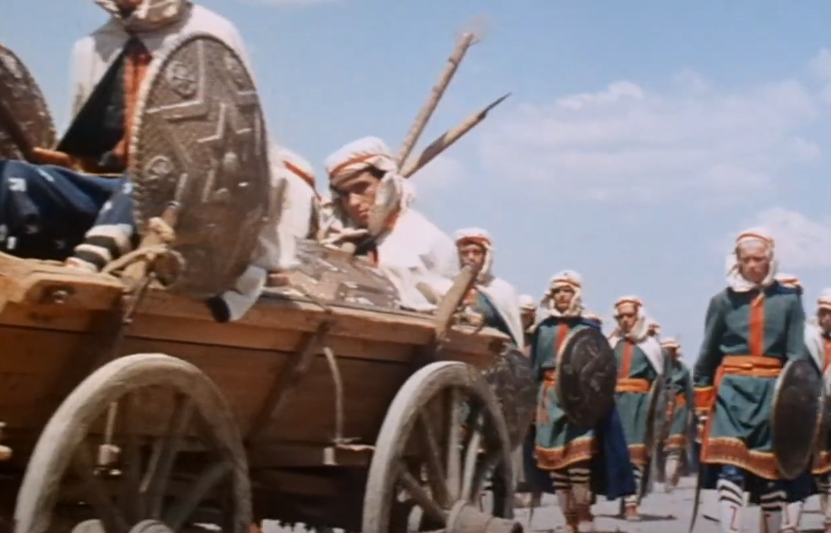 CCC Filmkunst, The Last Roman (1968)
CCC Filmkunst, The Last Roman (1968)
60. He Opened His Big Mouth
Hearing that the emperor Justinian was laid up with the plague, Belisarius openly discussed potential successors to the throne. Word soon got back to Justinian, who decided to remind Belisarius that he hadn’t succumbed yet. Belisarius was summoned to the capital and stripped of his command.
Some have wondered whether things would’ve been different if the cagey Antonina had been with him on the Persian campaign.
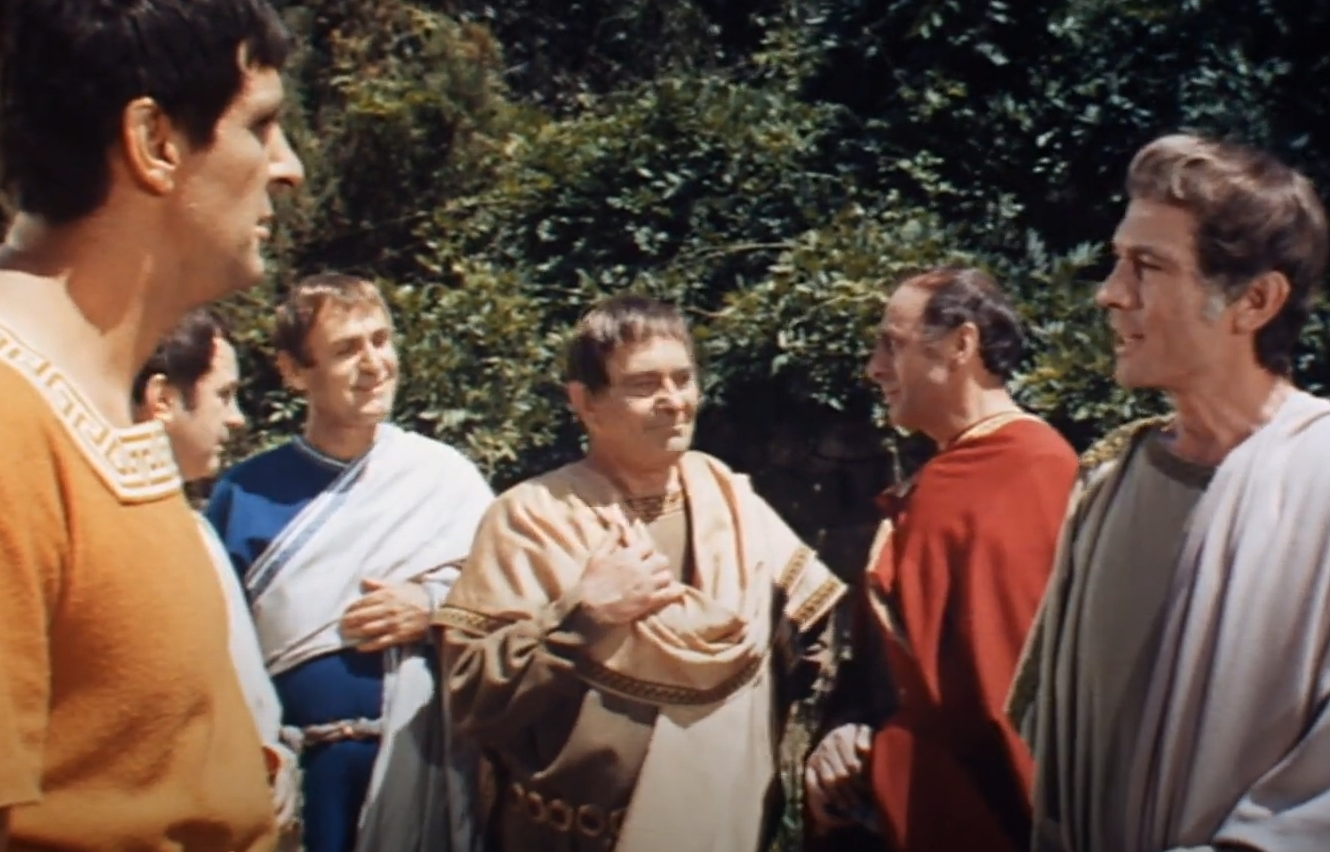 CCC Filmkunst, The Last Roman (1968)
CCC Filmkunst, The Last Roman (1968)
61. He Had Mixed Results
Deciding it was better to keep Belisarius busy at the front, Justinian now sent the general to Italy. But the situation there had deteriorated so badly, not even Belisarius could save it. Beset by plague, famines, disorder, and with Rome depopulated, Italy was receding from Justinian’s imperial dreams.
After spending six fruitless years in the country, Belisarius was recalled in 549. Wondering if it had all been worth it, he considered hanging up his sword.
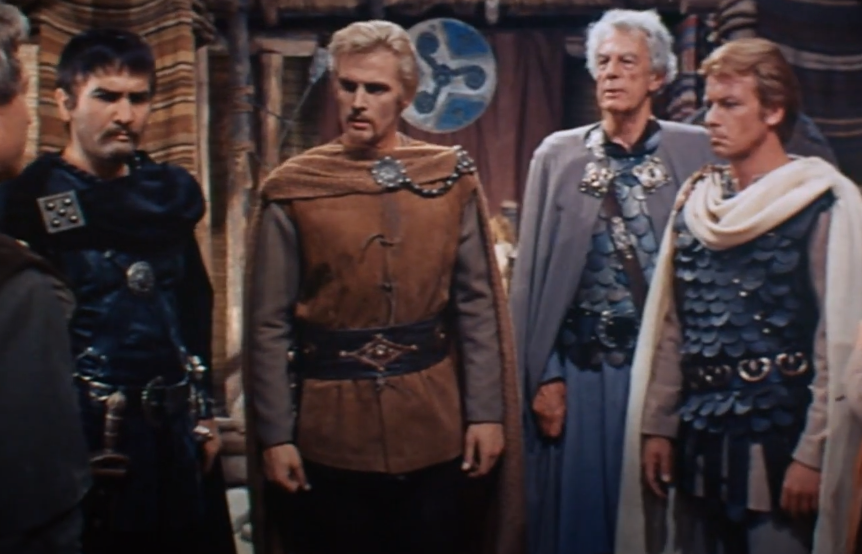 CCC Filmkunst, The Last Roman (1968)
CCC Filmkunst, The Last Roman (1968)
62. He Was In Retirement
With his reputation and financial situation secure, Belisarius retired. Whether he kept himself busy as an advisor to the army, or hung around the house to be a thorn in his wife’s side, is not revealed by the historical record. Whatever the case, Belisarius kept himself in a state of readiness. Then one day in 559, destiny came knocking again.
63. He Responded To The Threat
Belisarius learned that an army of 7,000 Huns had crossed the Danube River and was descending on Constantinople. With the capital defenseless, and the people around him panicking, Belisarius quickly rounded up 300 veterans of his Italian campaign and many willing civilians—less than 2,000 men in total. At the head of this motley group, he would make his stand.
64. He Won His Greatest Victory
Knowing they were out-numbered, Belisarius had his men light hundreds of torches and campfires to trick the Huns into incorrectly guessing their numbers. With his expert knowledge of the terrain, Belisarius lured the Huns into a narrow ravine where their superior manpower became useless. The strategy worked—and the bewildered Huns retreated in a panic. But the gleam of his greatest victory would soon fade.
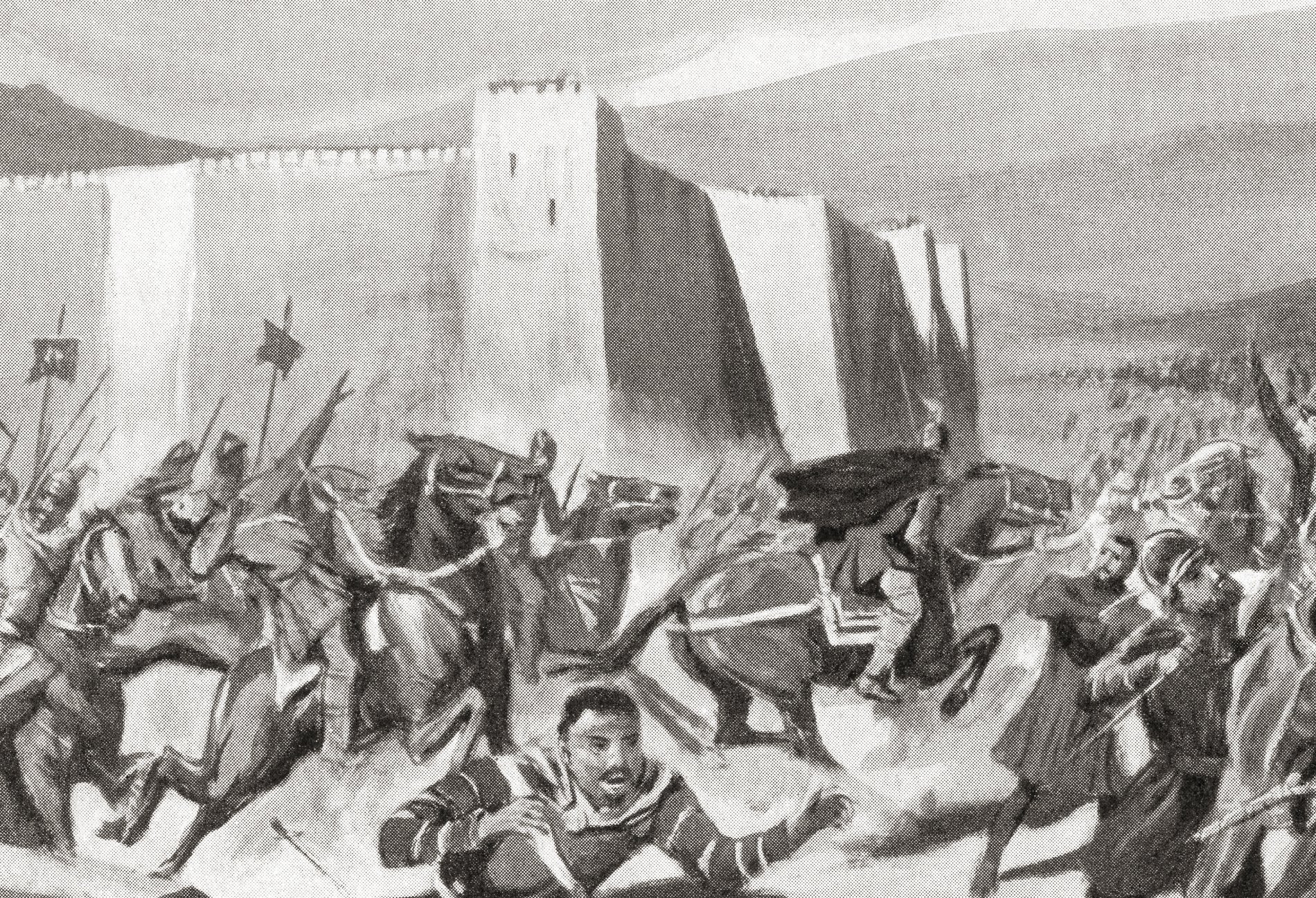 Universal History Archive, Getty Images
Universal History Archive, Getty Images
65. He Stood Trial
Belisarius was charged with conspiring to overthrow Justinian in 562. Although the two men had achieved so much together, they were never able to trust each other. Found guilty, Belisarius trudged home to enter house arrest.
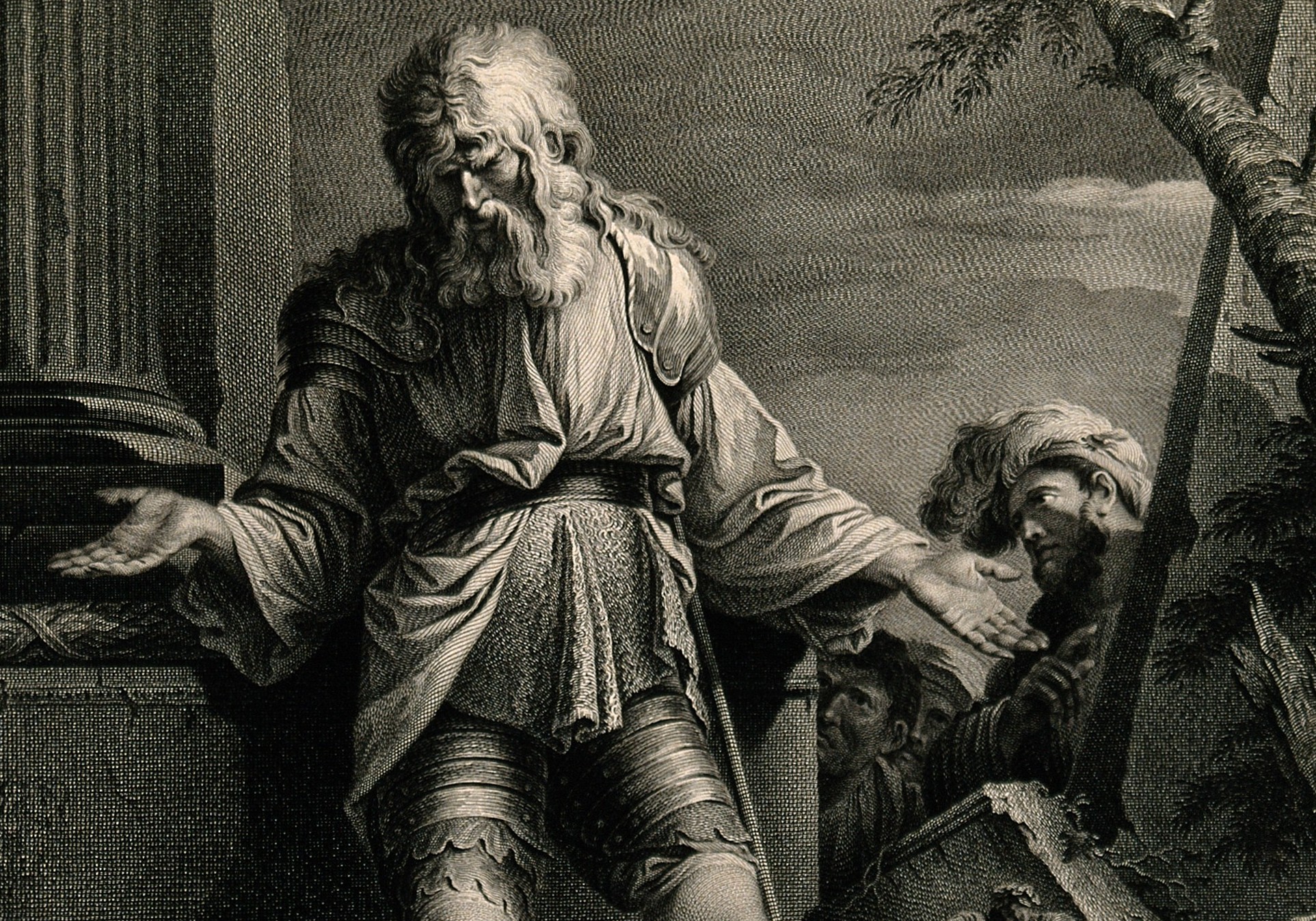 Robert Strange, CC BY 4.0, Wikimedia Commons
Robert Strange, CC BY 4.0, Wikimedia Commons
66. He Remembered His Advisor
Procopius published his entire record of his time with Belisarius in his book History of the Wars. In fact, much of what we know about Belisarius and Justinian comes from this book. But though Procopius seemed to be a loyal advisor to Belisarius, he also harbored a dark secret.
67. He Held The Empire’s Darkest Secrets
Procopius had written another private unpublished memoir of Belisarius and Justinian. Known now as The Secret History, the book described Antonina as a promiscuous serial adulterer and conniving backstabber who emasculated Belisarius, making a fool of him at every turn. Justinian and Theodora came in for even worse treatment.
Historians still disagree on the truthfulness of The Secret History, but there is no disputing the success of Belisarius on the battlefield.
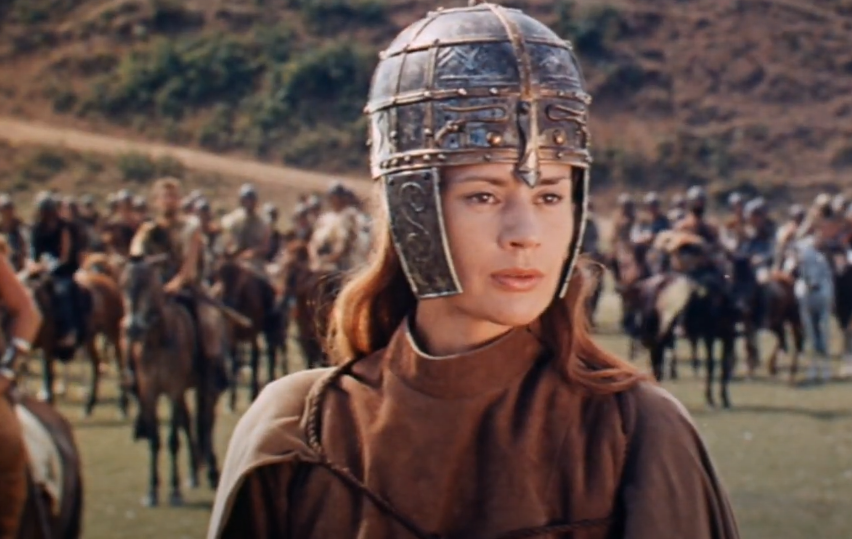 CCC Filmkunst, The Last Roman (1968)
CCC Filmkunst, The Last Roman (1968)
68. He Was Part Of An Enduring Legend
Justinian soon lifted the house arrest, and Belisarius lived out his life on his estate on the Asian side of the Bosporus. Tales later spread that Justinian had Belisarius blinded, and that the general had lived his last days as a blind beggar panhandling on street corners.
Works of art and novels would be created depicting this tragic fate, but the story appears to be a myth. It seems that Belisarius was able to find some peace in his last years.
 Jacques-Louis David, Wikimedia Commons
Jacques-Louis David, Wikimedia Commons
69. He Welcomed The Hereafter
Belisarius drew his last breath in 565. He is likely interred somewhere in the Asian portion of present-day Istanbul. Although the long-term importance of his victories is debatable, no one could dispute that the last great Roman general had done his duty to the utmost.
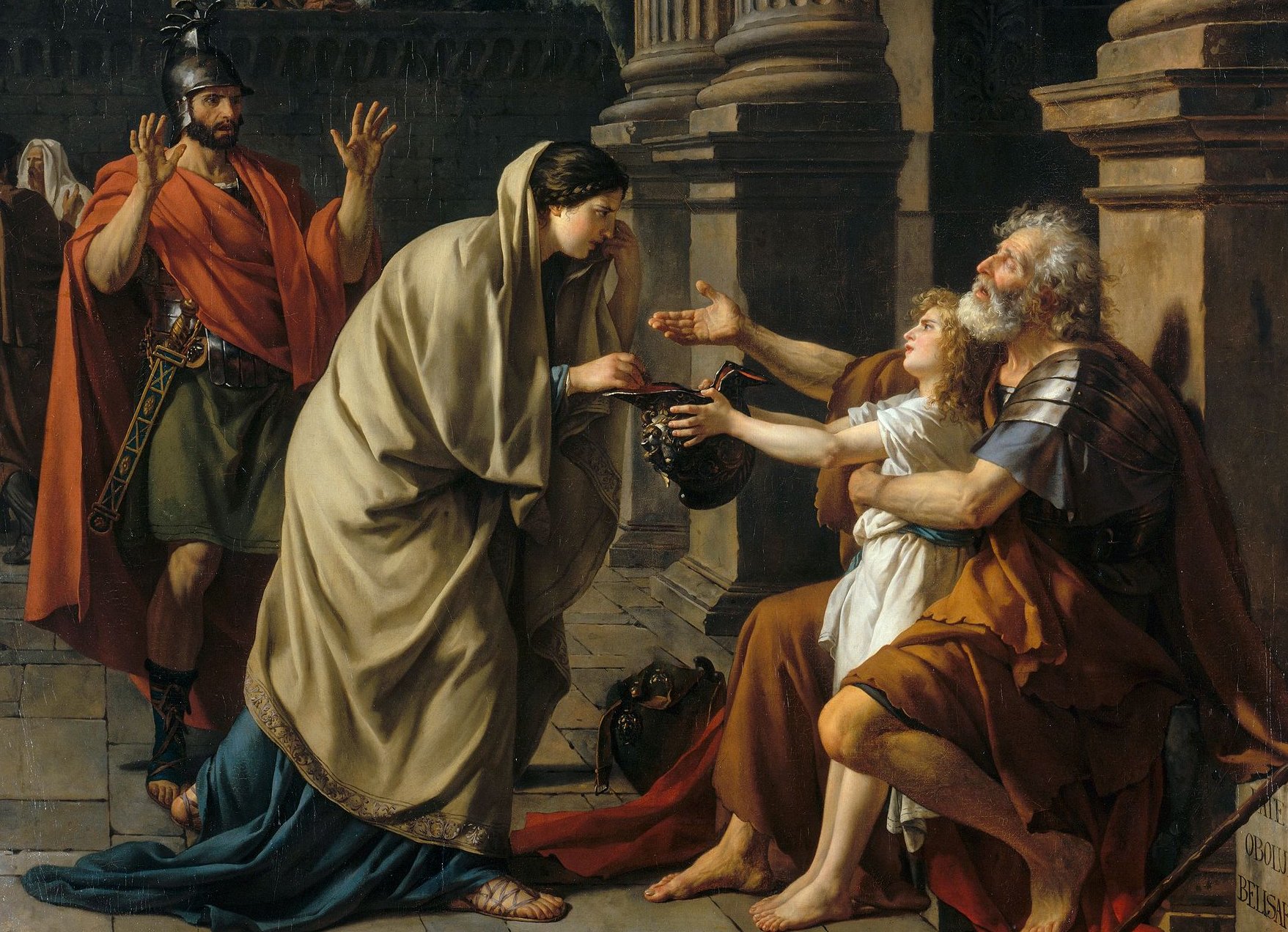 Jacques-Louis David, Wikimedia Commons
Jacques-Louis David, Wikimedia Commons
70. He Was The Last Great Roman General
Though Belisarius fought for the Byzantine Empire, he showed time and time again the qualities that made the ancient Romans so tough.
He won sweeping victories with relatively few resources.
He was ruthless when the situation demanded it, yet showed great mercy that could win people to his cause.
He was able to use grand speeches to lift his men’s spirits.
He didn’t allow himself to panic under pressure.
Most importantly, he did what needed to be done—at all costs. This makes Belisarius the Last Great Roman General.
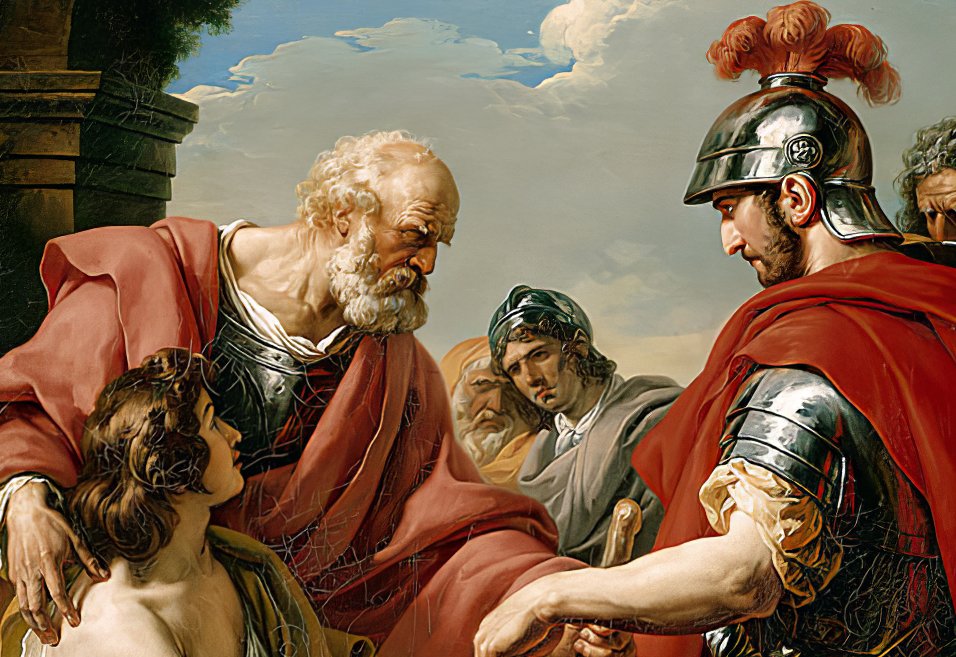 François-André Vincent, Wikimedia Commons
François-André Vincent, Wikimedia Commons


